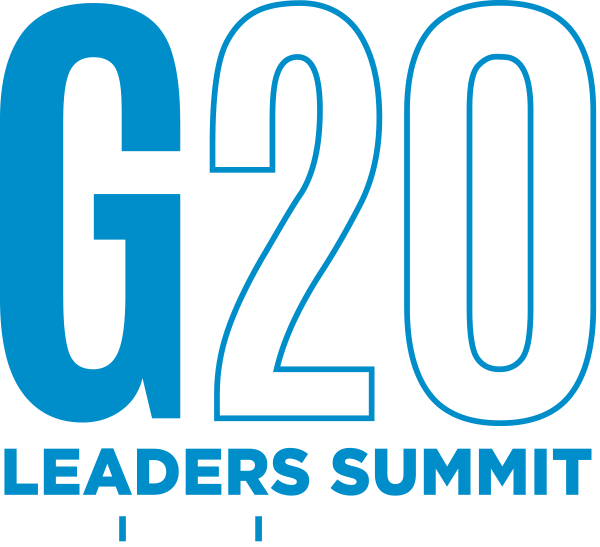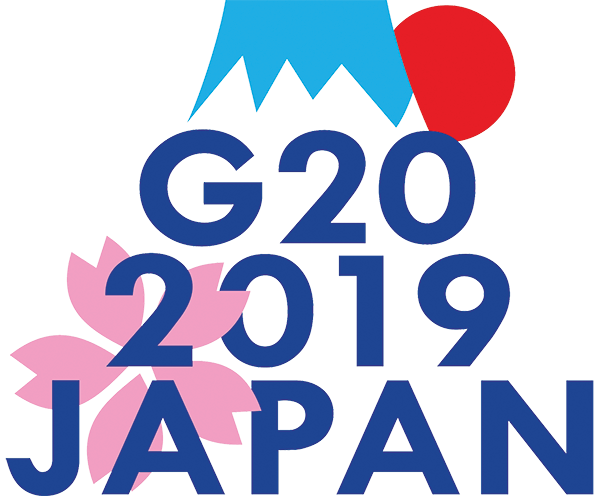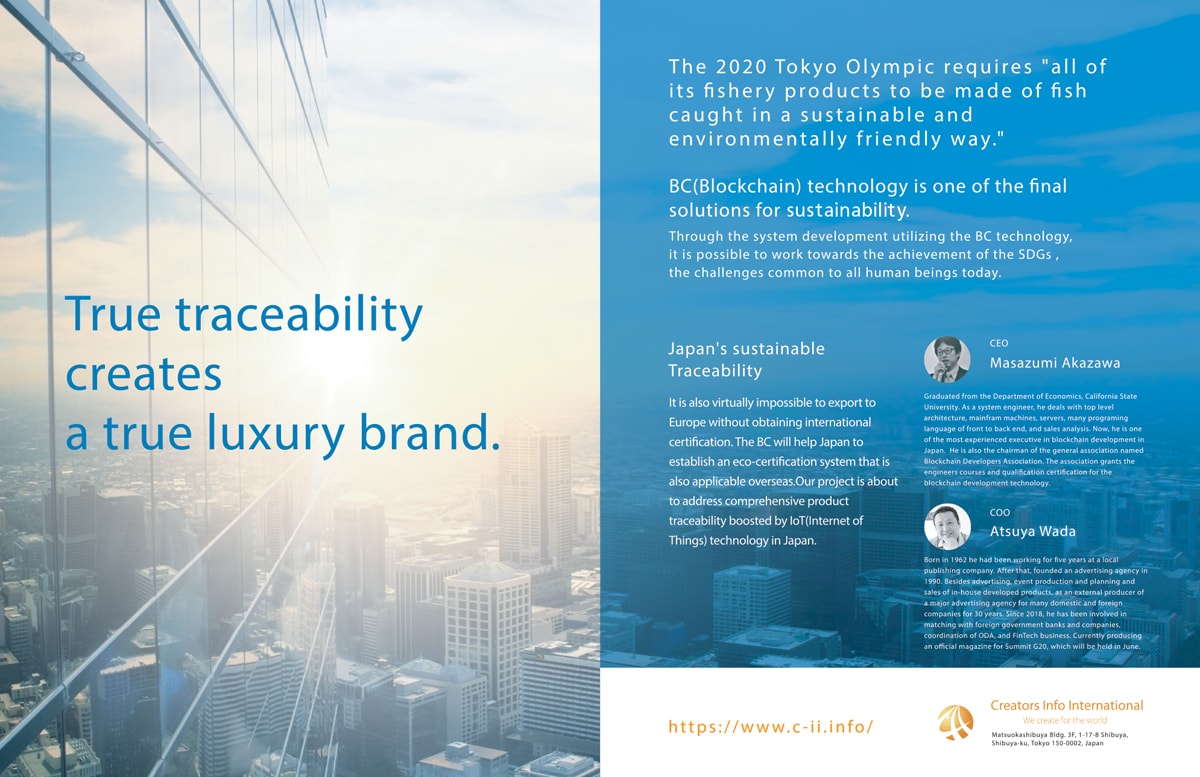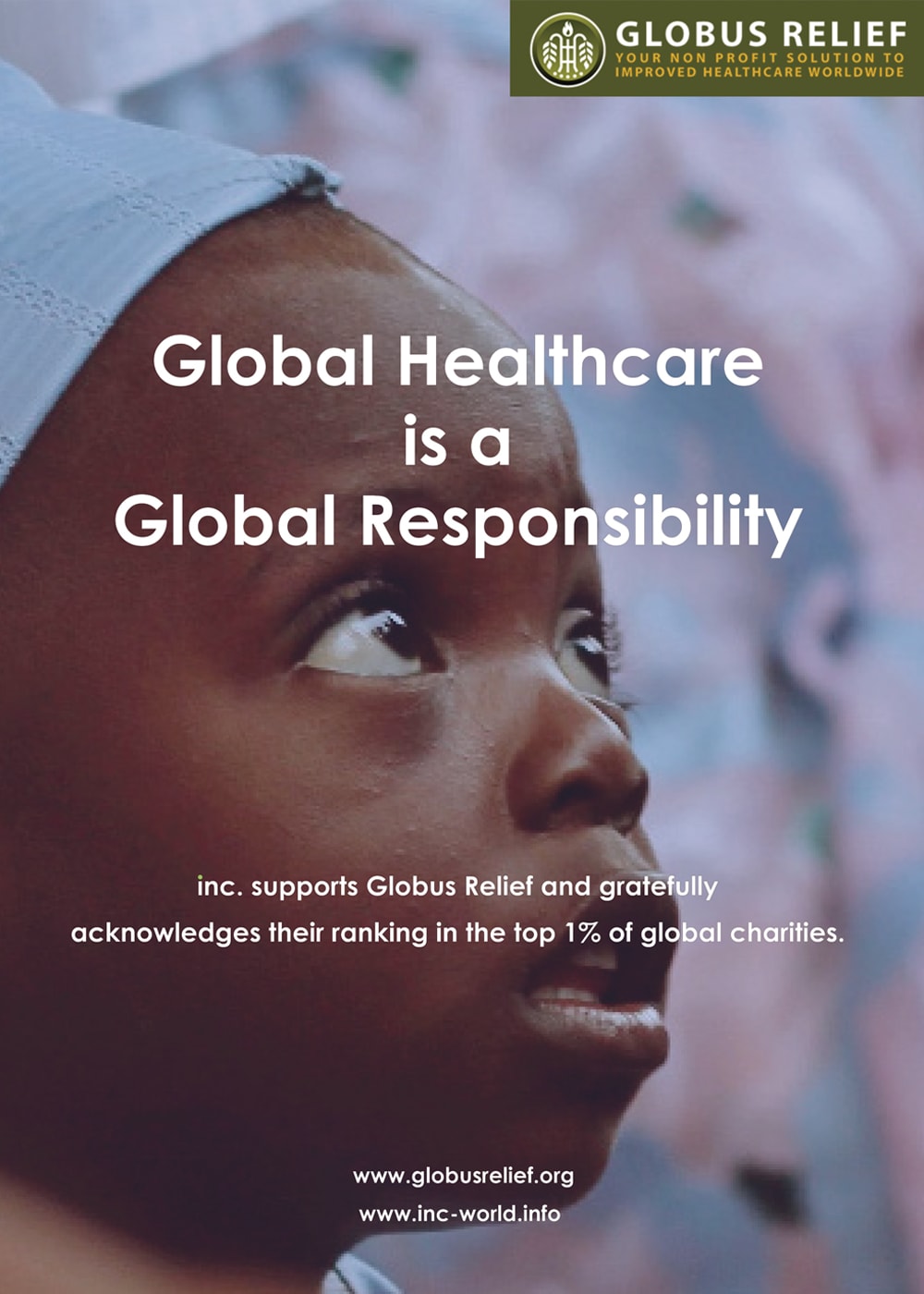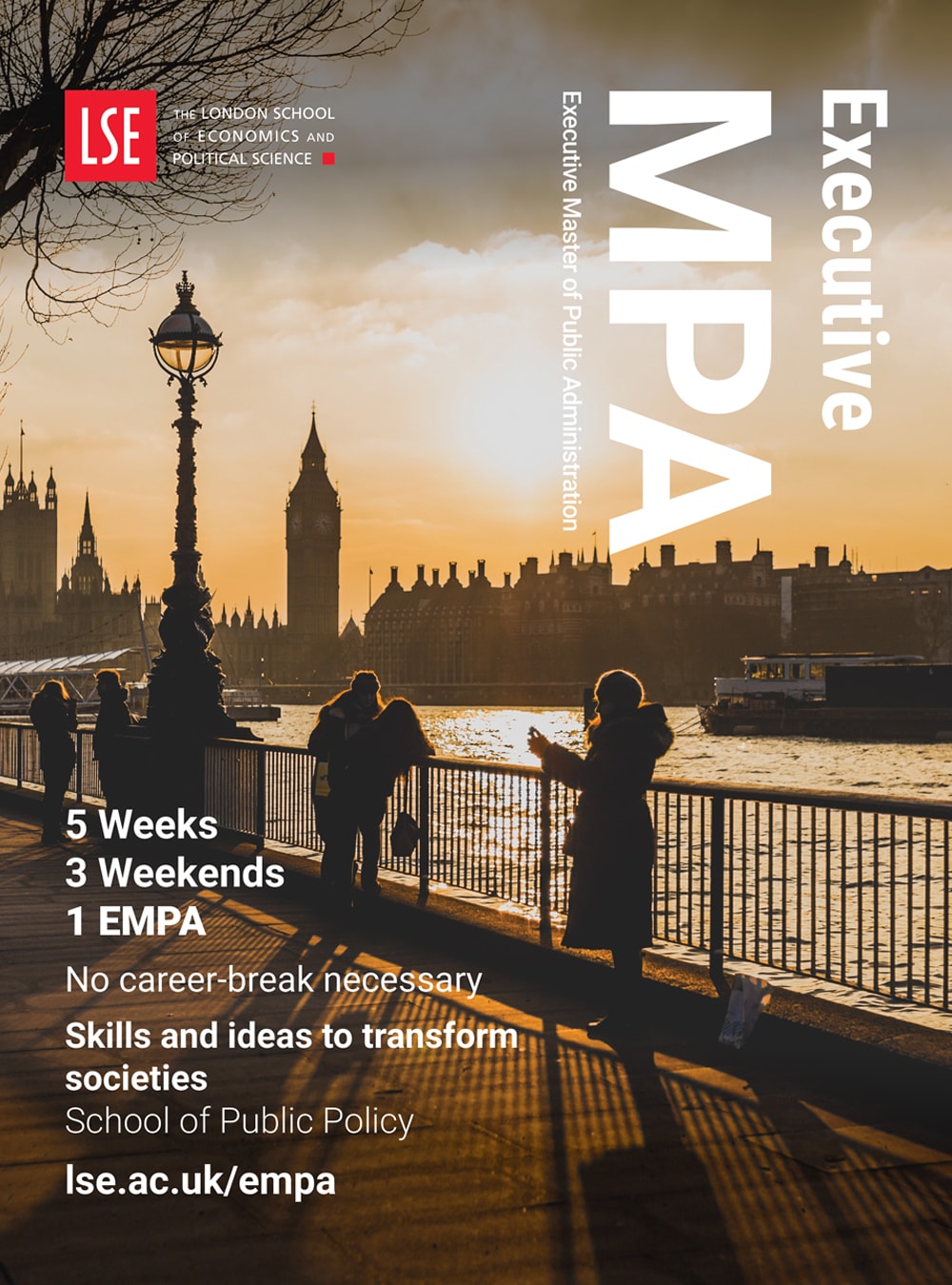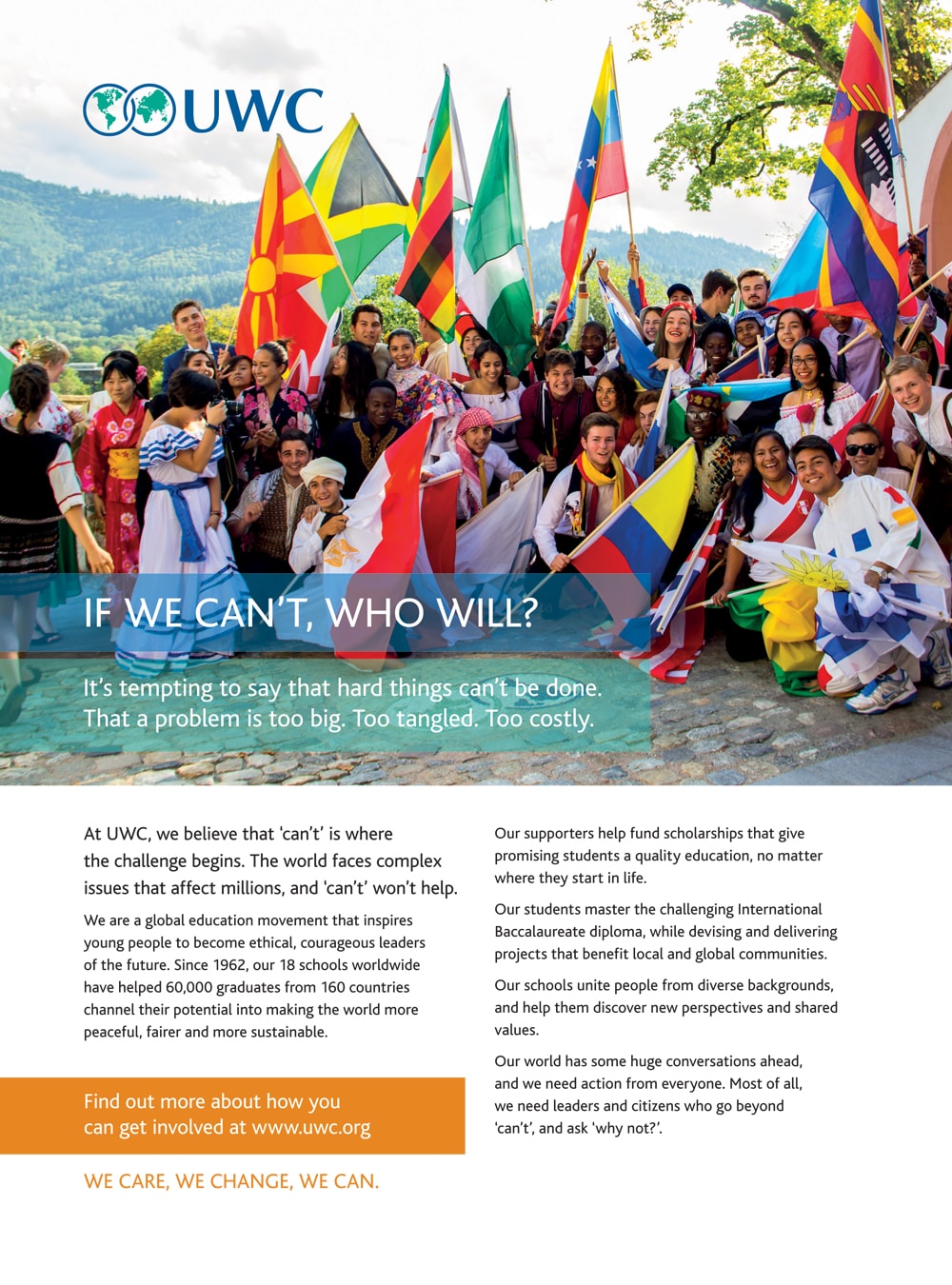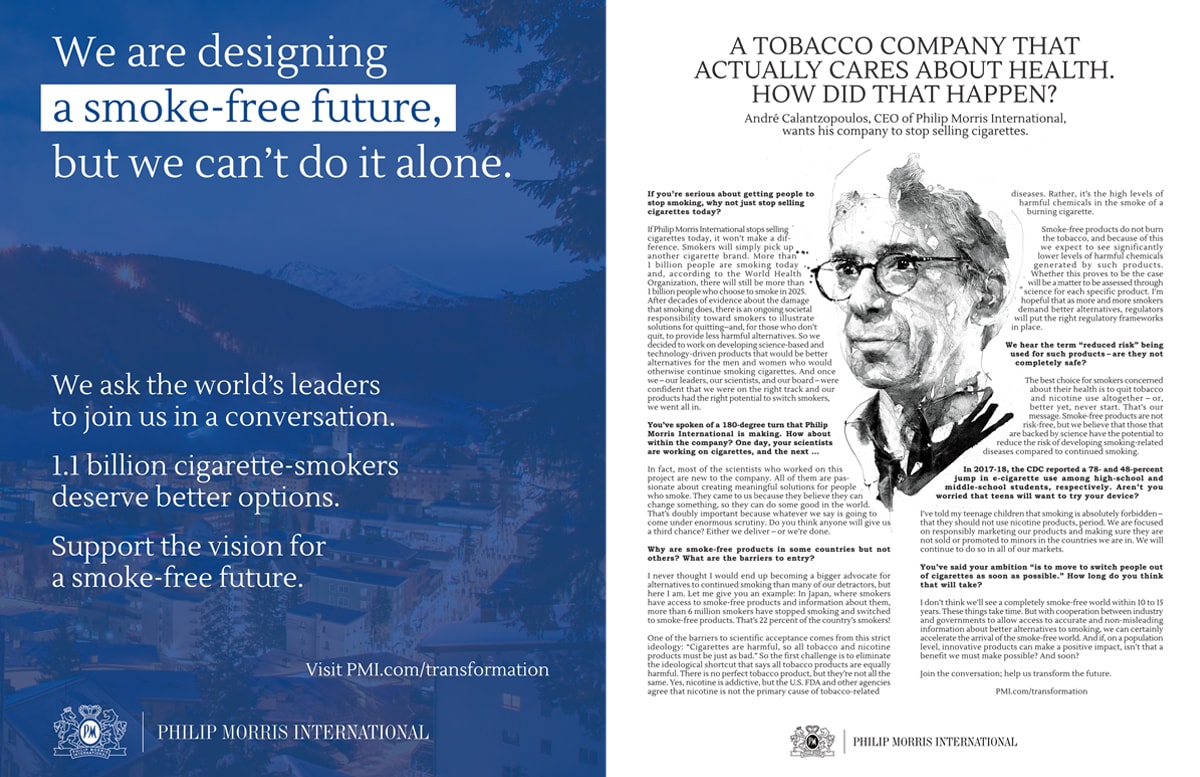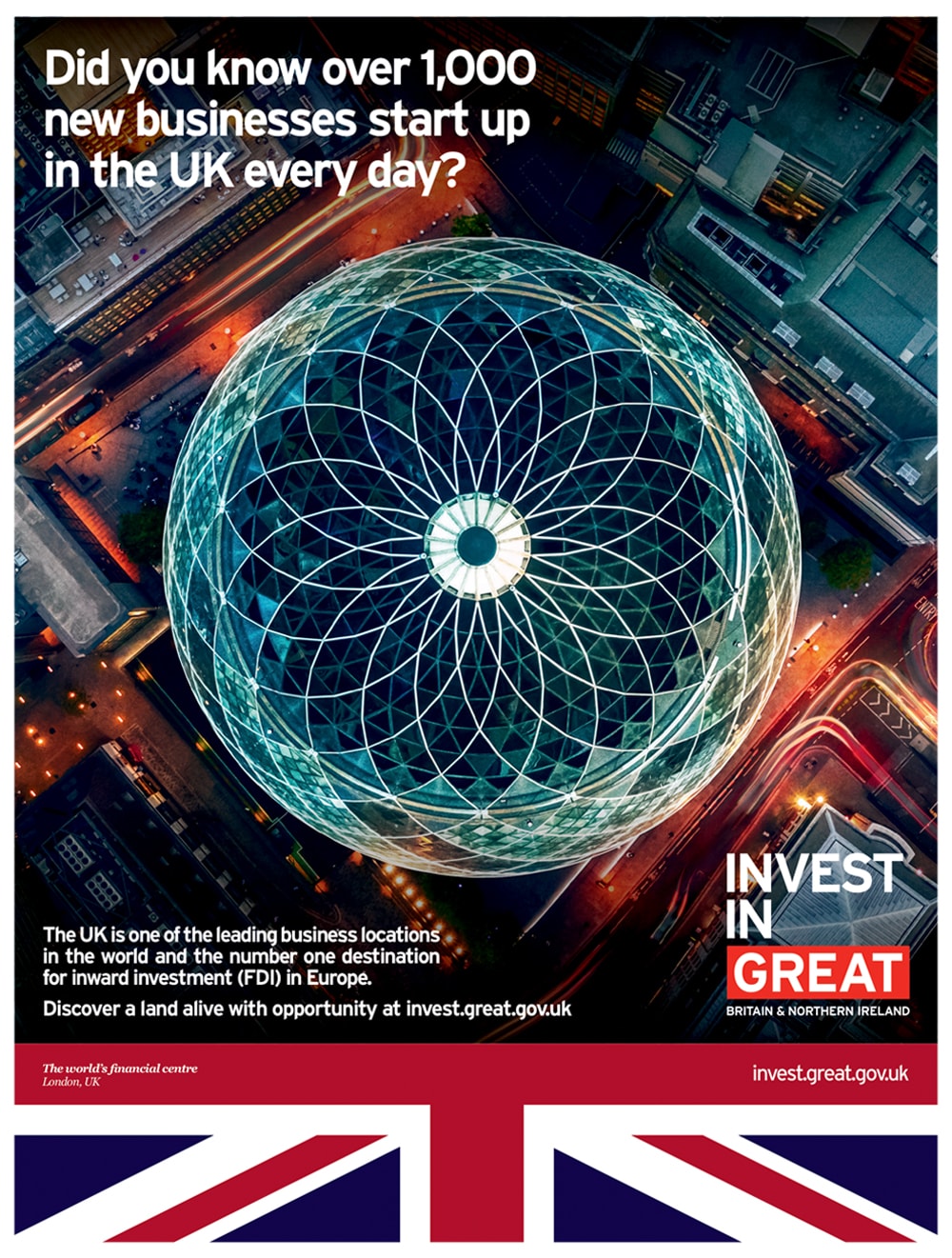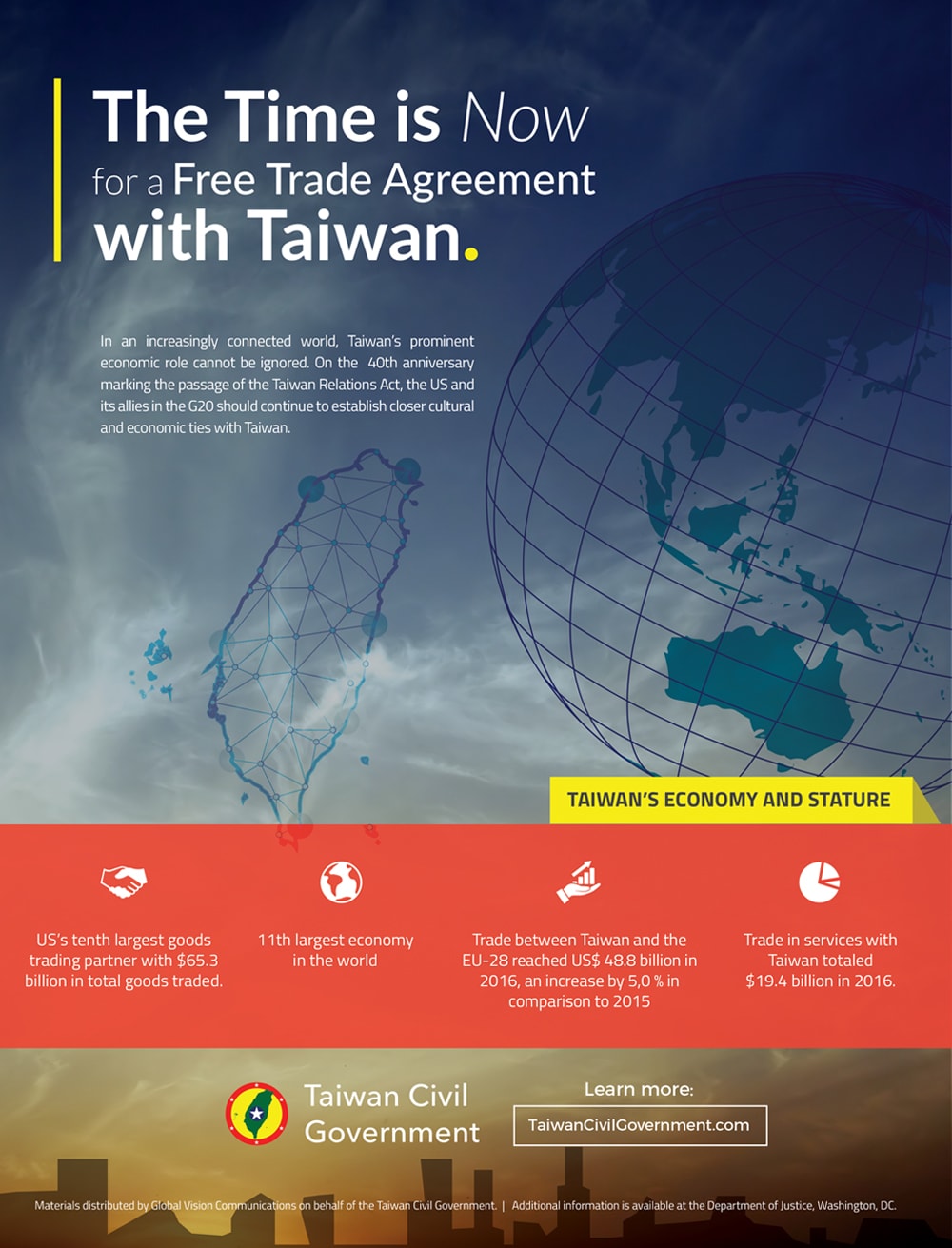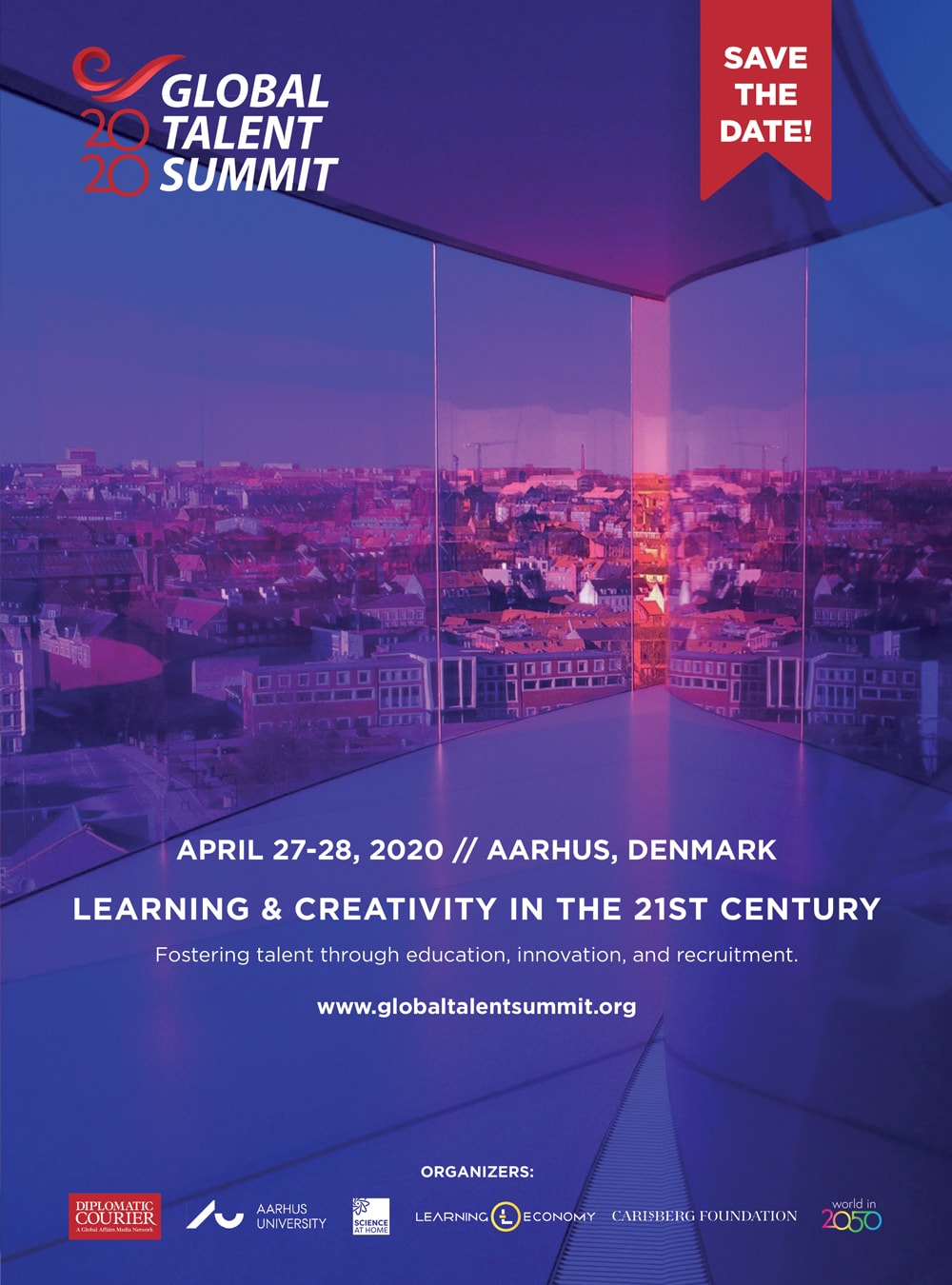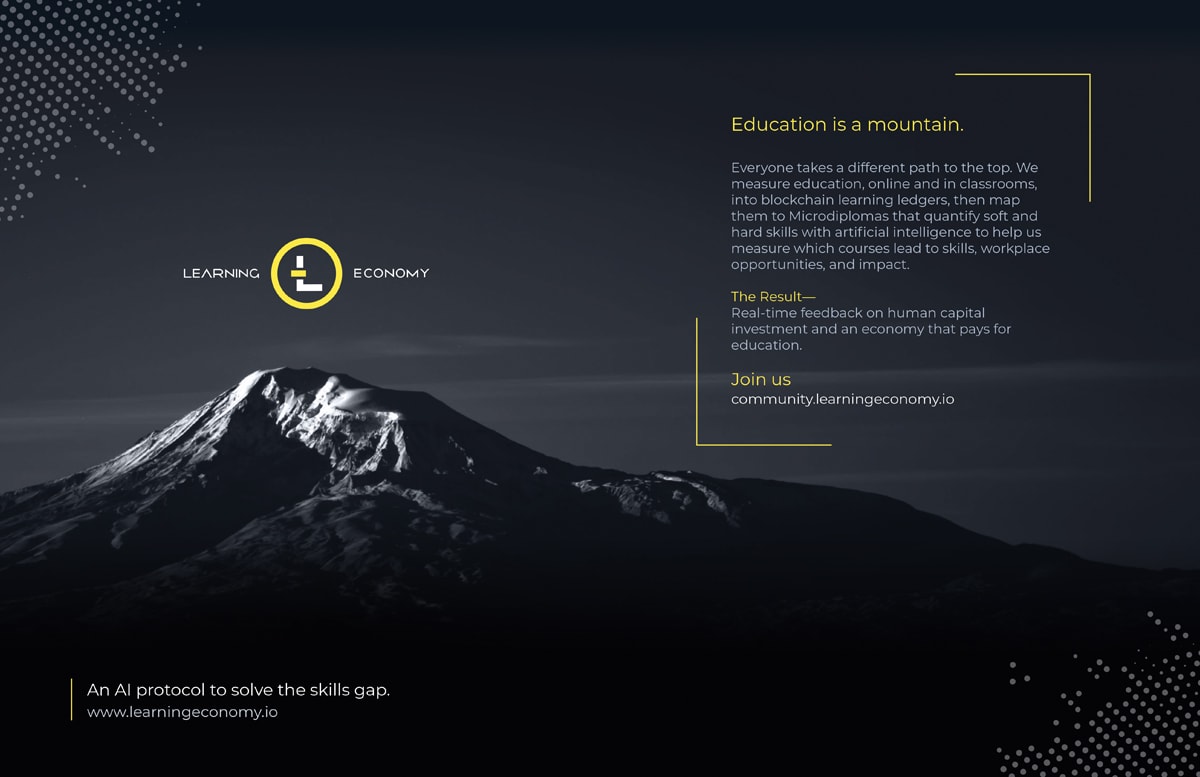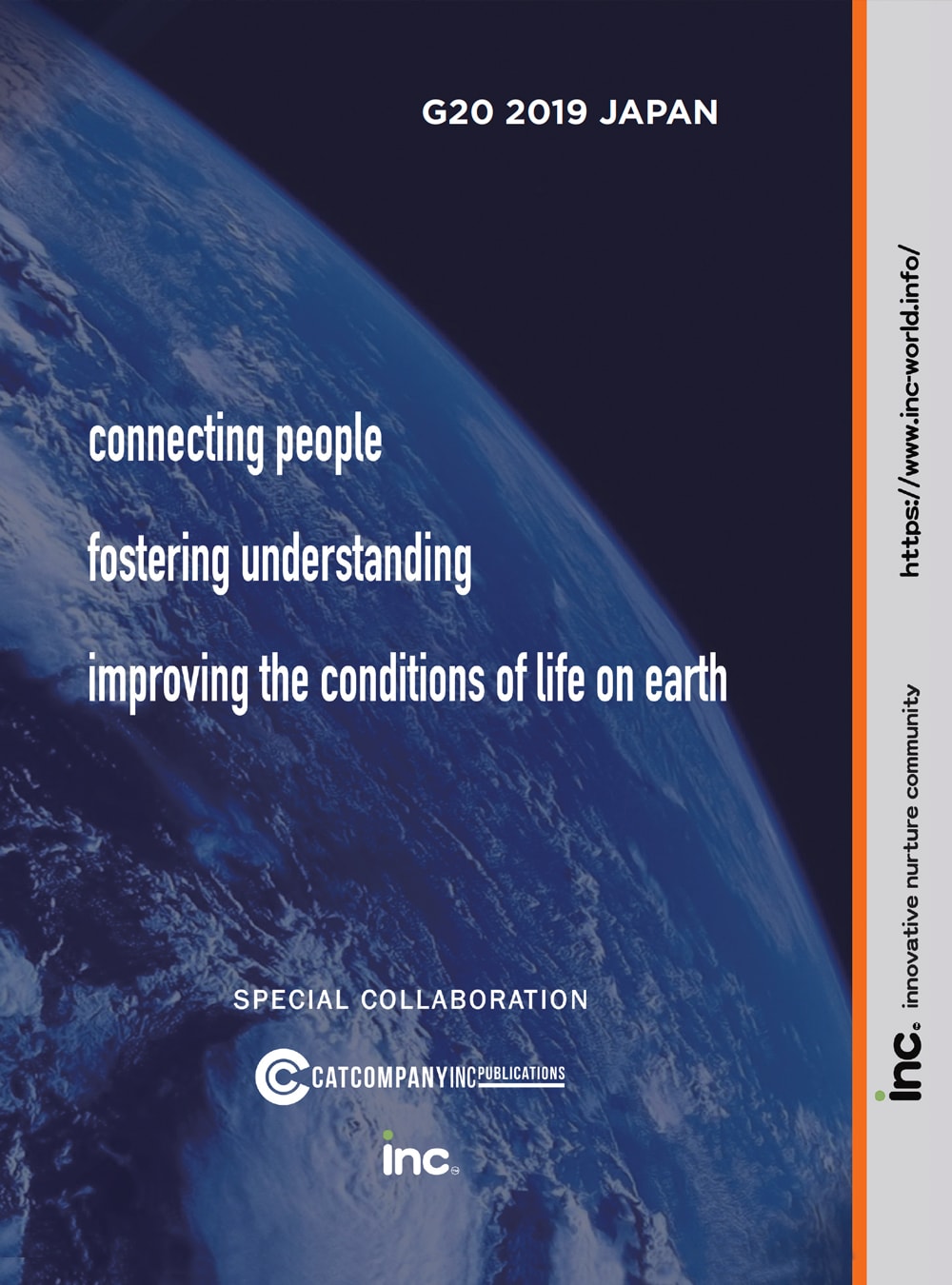contents
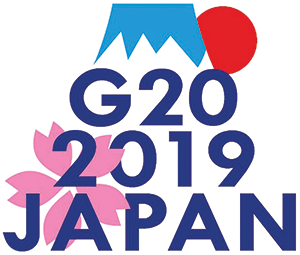

From a Vicious to a Virtuous Circle
How WISE is Reimagining Education Through a Biological Metaphor
The Why and the How
It is Not the New Oil
Who Will Take the Lead?
Prime Minister
Mayor of Fukuoka City
Reforming Global Finance Architecture
The Role of Knowledge Infrastructures
Chris Atkins
Editor-in-Chief
Ana C. Rold
editors@diplomaticourier.org
Creative Director
Christian Gilliham
christian@cgcreate.co.uk
(+44) 7951 722265
EDITOR (LSE)
Erik Berglof
Communications Officer (LSE)
Carolina Stern
Piroska Nagy-Mohacsi
Executives
Ray Baker, Phil Cook, Anthony Leigh Jones, Delano Johnson & Tyrone Eastman
Special thanks
Franz Wldenberger
Kyoko Yoshida
Michael Silva
Eriya Unten
Seiko Hashiba
Haruki Takara
Masayuki Matsunaga

All rights reserved. The B20 Publication is a product of CAT Company.
No part of this publication can be reproduced without written consent of the publisher Chris Atkins and the CAT Company. All trademarks that appear in this publication are the property of the respective owners. Any and all companies featured in this publication are contacted by CAT Company to provide advertising and/or services. Every effort has been made to ensure the accuracy of information in this publication, however, CAT Company makes no warranties, express or implied in regards to the information, and disclaim all liability for any loss, damages, errors, or omissions.
editorial


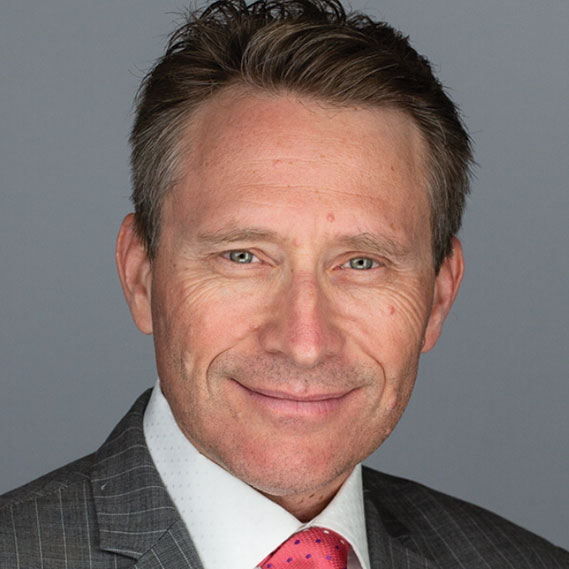
Publisher, ceo & Founder
Cat Company, Inc.
I am thrilled to welcome you to the 2019 G20 Leaders Global Briefing Report.
It has been more than two decades since CAT Company produced the very first G7 Summit publication. In 1997, our work earned us the trust of the host government and since then we have been honored to be the go-to publisher and consultant for host governments of the G7 and the G20 Summits for 22 years in a row. And for over two decades our company’s own history and legacy are tied to these most important of global leadership gatherings.
As we reflect on the past two decades and more, I wish to express my heartfelt thanks to Japan’s G20 Host Committee for the use of the official G20 logo.
I also want to take this opportunity to thank our editorial partner, the London School of Economics and Erik Berglof, the inaugural Director of the Institute of Global Affairs and the Global Policy Lab. It’s been a true privilege to work again with Professor Berglof in this edition and I look forward to our continued collaboration this year at the G7 Summit and beyond.
Since 1997 our company has grown and expanded exponentially. Our portfolio of publications, which also includes the leading editions for the APEC CEO Summit, G7 Leaders Summit, G20 Leaders Summit and B20 Summit respectively, have been recognized globally.
Our company’s mission has been and continues to be to educate the global community on the most vital topics affecting our society and the agenda and leaders at the APEC, G7, G20 Leaders and G20 business summits. Through our award-winning publications, we have created an unprecedented opportunity for private sector leaders, IGO leaders, and civil society to have a voice at these summits even when they don’t have a physical seat at the table.
We look forward to the G20 Leaders Summit in Japan this year and we look forward to working with you all again in the years to come.
Thank you for reading!
Peter Atkins, 16th September 1940 to 3rd April 2019. He will be truly missed.

prime minister’s message


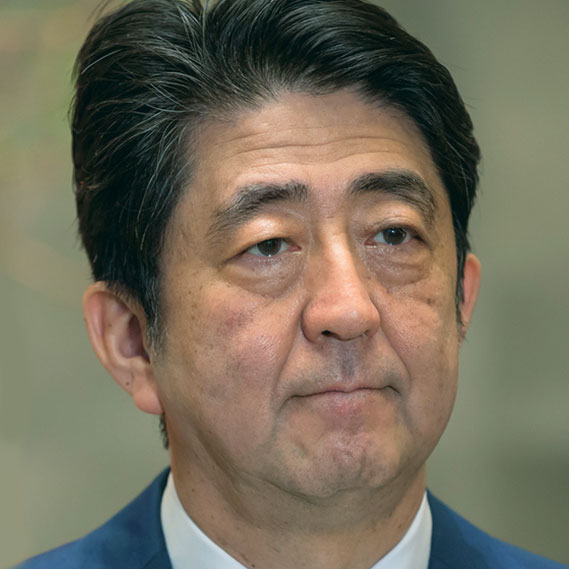
Prime Minister
Following the successful
completion of the G20 Buenos Aires Summit on December 1, 2018, Japan has finally assumed the G20 presidency for the very first time. This year, Japan will host the G20 Osaka Summit on June 28 and 29, 2019. In addition to the G20 member countries, we will also welcome leaders of invited guest countries and head of invited guest international organizations. This will be the largest summit meeting that Japan has ever hosted.
Osaka will be the venue for hosting the G20, the “premier forum for international economic cooperation,” which gathers and brings together many developed countries and emerging countries with growing presence in the international economy. Osaka has historically prospered as a commercial hub and its unique tradition and culture, including food culture, has recently gained much reputation home and abroad. Moreover, Osaka has thrived as a merchant city and has constantly sought to take in new ideas. It is a place where the spirit and willingness to take on new challenges has been nurtured and was also chosen to host the Osaka-Kansai Expo in 2025.
editorial


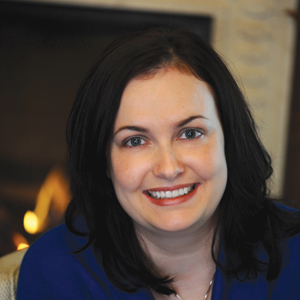
editor-in-chief
Cat Company, Inc.
We are thrilled to collaborate with the London School of Economics and the Global Policy Lab again, to produce
a publication focused on how leaders from the policy, diplomatic, business communities as well as civil society are offering solutions to some of the most intractable challenges facing the G20 members as well as our world at large.
We are particularly proud to have the support of Japan’s organizing committee in distributing our publications to the attending leaders at the G20 Summit for this year’s increasingly relevant and important forum of global leaders—a testament to our longevity in the field and our team’s tireless efforts to produce a publication by the leaders for the leaders for more than two decades now.
mayor’s message


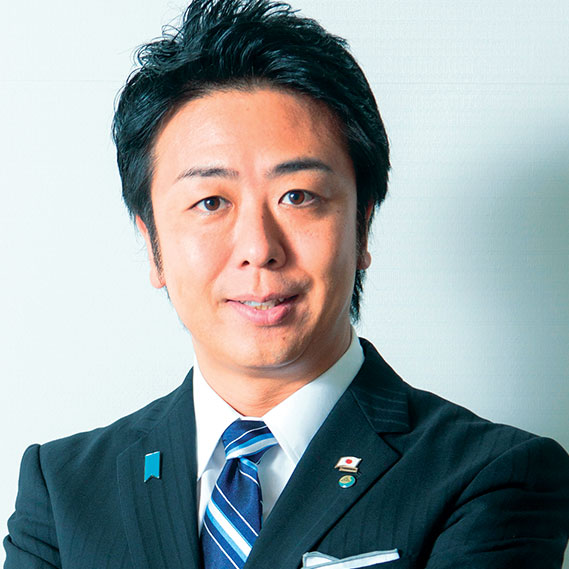
Mayor of Fukuoka City
It is with great pleasure that Japan’s first ever G20 Finance Ministers and Central Bank Governors’ Meeting is being held in Fukuoka. I would like to extend a warm welcome to everyone coming here from around the world for this exceptional event.
Fukuoka is a compact city blessed with comprehensive urban functions and rich natural surroundings. The city boasts world-class accessibility, with the center only a stone’s throw away from the airport, a mere 10 minutes by subway. Fukuoka also has an impressive track record as a venue for international conferences, and is set to host major international events, including some of the 2019 Rugby World Cup matches and the 2021 World Aquatics Championships.
Fukuoka’s rich natural environment provides not only beautiful scenery but also a bounty of delicious foods from both sea and land, a place where fresh ingredients are available in abundance. Our city attracts gourmets from across Japan, lured by a variety of culinary delights including world-renowned ramen noodles, seafood and hotpot dishes like mizutaki.
GLOBAL
POLICY LAB
Overview Proposal
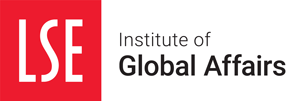
Reforming Global Finance Architecture
GLOBAL POLICY LAB

London School of Economics and Political Science
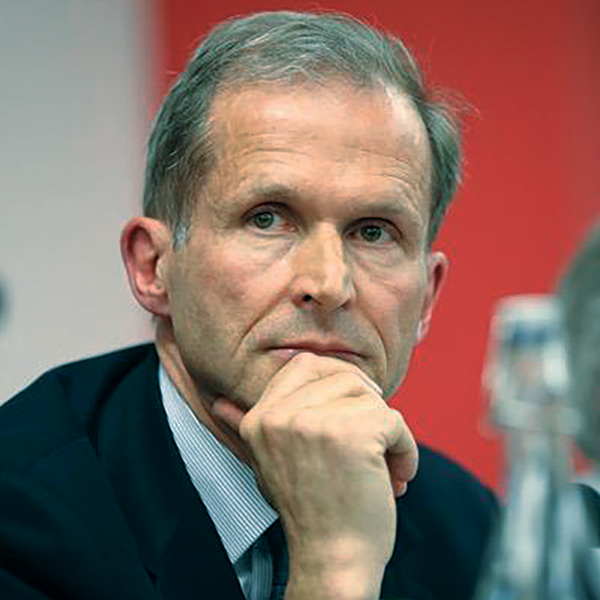
Critics of the Report say that the proposals are not going far enough and that implementation efforts are too timid. Yet, at a time of populism and major backlash against multilateralism and the institutions of global governance, the EPG Report is the best thing we can hope for – a comprehensive and analytically astute benchmark for the necessary discussion of a new multilateralism. Some proposals could have gone further and all ideas are not fully developed, reflecting political constraints, but they can now be picked up by others and taken further.
GLOBAL POLICY LAB

Global Financial
System Work
for All
n April 2017, the G20 Eminent Persons Group on Global Financial Governance was asked by the G20 Finance Ministers and Central Bank Governors to recommend reforms to the global financial architecture and governance of the system of International Financial Institutions (IFIs) so as to promote economic stability and sustainable growth in a new global era; and to consider how the G20 could better provide continued leadership and support for these goals. The result was the first of its kind global report titled “Making the Financial System Work for All.”
At the heart of the report is the future of the open and competitive world order that has brought a large part of humanity out of poverty, raised living standards across nations, and provided the foundation for unprecedented global peace over the last 70 years. That open order remains critical to every nation’s future. But the system of international governance and cooperation that underpins it is fraying. Left on its own, there is a real risk of drift into a fragmented world, with policies in different parts of the world working at odds with rather than reinforcing each other, and with all nations ending up losing.
GLOBAL POLICY LAB

Overview proposals
Re-focus on governance capacity and human capital, as foundations for a stronger investment climate.
Build effective country platforms to mobilize all development partners to unlock investments, and maximize their contributions as a group, including by convergence around core standards.
Implement regional platforms to facilitate transformational cross-border investments and connectivity.
Reduce and diversify risk on a system-wide basis to mobilize significantly greater private investment, including portfolio-based infrastructure financing.
Proposal 4a:
Shift the basic business model of the MDBs from direct lending towards risk mitigation aimed at mobilizing private capital.
Proposal 4b:
Develop system-wide political risk insurance and expand use of private reinsurance markets. Proposal
Proposal 4c:
Build a developing country infrastructure asset class with the scale and diversification needed to draw in institutional investors.
Right-size’ capital requirements for MDBs and other investors in infrastructure, given their default experience.
Proposal 5a:
Establish tailor-made capital and liquidity frameworks for the MDBs.
Proposal 5b:
Review the regulatory treatment of infrastructure investment by institutional investors.
Strengthen joint capacity to tackle he challenges of the global commons.
Proposal 6a:
Integrate activities in support of the global commons into the IFIs’ core programs, and coordinate them within country platforms.
Proposal 6b:
Create global platforms with the UN guardian agency and the World Bank coordinating and leveraging on the key players in each of the commons.
GLOBAL POLICY LAB

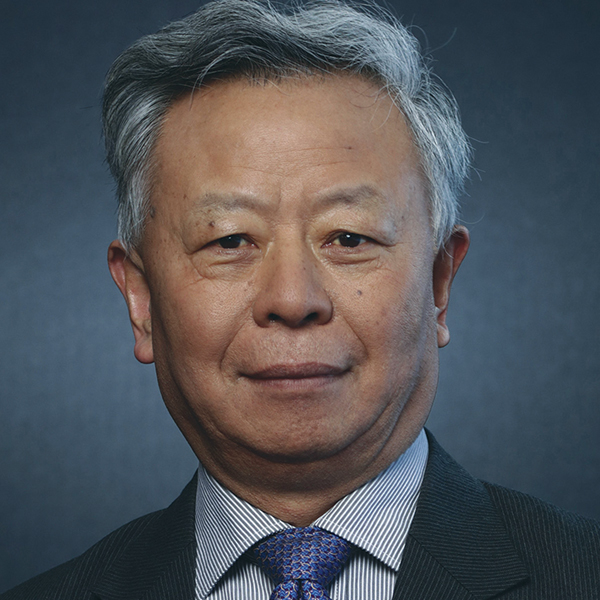
At the same time, investments through external borrowing should not undermine debt sustainability or leave a big footprint in environmental and ecological systems. Achieving all these not quite congruous objectives is the only way to secure buy-in from the people for these actions. This makes it all the more important to identify a fresh approach to development based on our collective experiences. In this context, MDBs should ramp up their efforts to be more responsive, innovative, efficient and cost-effective, and they have to break away from outdated modus operandi.
GLOBAL POLICY LAB

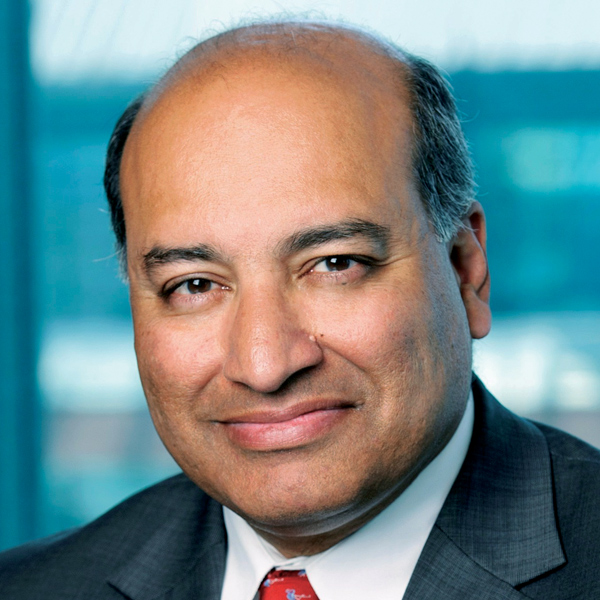
I therefore heartily welcomed the strong message from the G20 Eminent Persons Group (EPG) on Global Financial Governance. The EPG made an articulate and unapologetic call for a well functioning multilateral system, alongside national governments and other actors. In championing the case for bolstering the system, the EPG also conveyed a sense of urgency for action.
To deliver the Sustainable Development Goals (SDGs) by 2030, the multilateral system, in partnership with national governments and the private sector, needs to deliver better, more and faster. This is true especially as the world faces a number of global challenges, climate change being the major one. And Africa, with its fast growing population, and the region most behind on achieving the SDGs, is another priority.
GLOBAL POLICY LAB

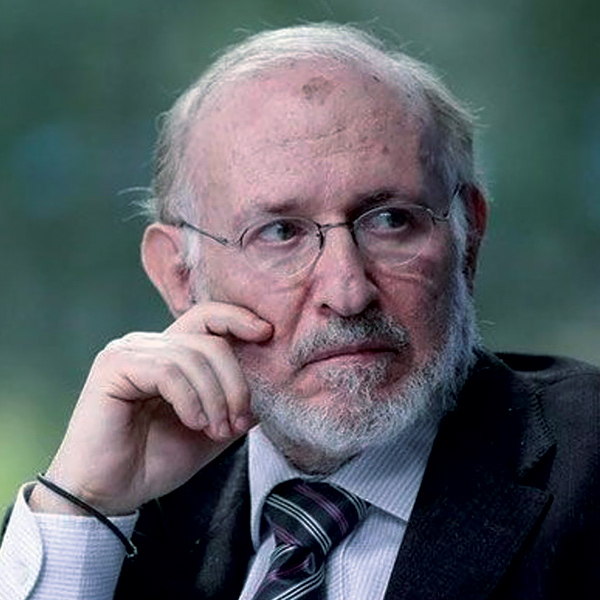
At the center of the current structure of multilateralism are the two pillars of the post Second World War system: the International Monetary Fund and the World Bank. These two organizations constitute the vertebral column of the global international relationships and one of its prominent features is indeed its global, i.e., universal membership. All independent countries in the world have the right of membership in both organizations. In that sense they follow the nature of the United Nations organization to whom they formally belong. There are however two very important, perhaps crucial, differences between the membership structure in the United Nations and these financial organizations. These differences can be summarized in the concept of “constituency” and “weighted voting rights”. While in the United Nations all countries are directly represented by a delegation of each countries and all countries have their own representatives in the General Assembly, in the International Monetary Fund only a few selected countries are directly present with their own Executive Director while the majority belong to constituencies where clusters of countries are organized in groups with a single representative of the group being the Executive Director for each for the whole. Leadership of the constituency can rotate or be fixed to some extent – without clear criteria. The World Bank is similarly organized.
GLOBAL POLICY LAB

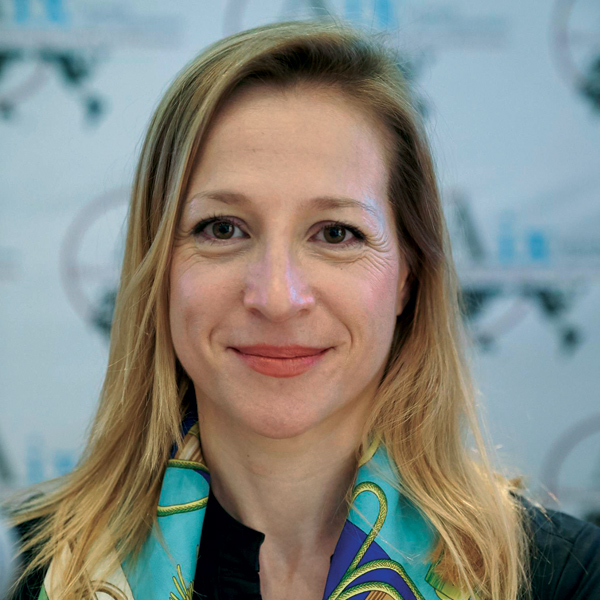
The Eminent Persons Group (EPG) identified as a key goal for the G20 to secure the benefits of interconnected financial markets and in particular to enable countries to utilize international capital flows without risks arising from excessive market volatility. That this goal remains an aspiration in 2019 despite the innovations introduced in the wake of the global financial crisis (GFC) is telling. FX liquidity lines are an important area where gaps persist.
When the GFC broke out, FX swap lines quickly emerged as a gap in the global safety net that we hitherto didn’t know existed—specifically, even countries without significant imbalances and reserve currency issuers could find themselves in urgent need of vast amounts of foreign cash, courtesy of their banks’ funding models. In the event, it was promptly remedied, with the US Federal Reserve (Fed) and then other major central banks quickly stepping in. Does this mean we can trust this gap will not reemerge in the next crisis? Far from it.
GLOBAL POLICY LAB




The ongoing review of the contributions and associated voting rights of individual countries in the IMF—an opportunity to reinforce the global financial safety net (GFSN) – has stalled. The US claims that it does not need more resources – the IMF is “right-sized” – and like Europe does not want voting rights to change. China and other emerging economies, on the other hand, are willing to provide more resources in exchange for increased influence.
The GFSN is essential to prevent or contain the risk and impact of economic and financial crises, and promote economic stability. Whether it consists of national reserves, bilateral support, regional schemes, or multilateral assistance mechanisms, its operation spurs investment and sustainable growth, helping the global financial system work for all. Ensuring it remains “fit for purpose” and effective is an important part of the reforms to the global financial architecture and governance proposed by the G20 Eminent Persons Group on global financial governance.
GLOBAL POLICY LAB

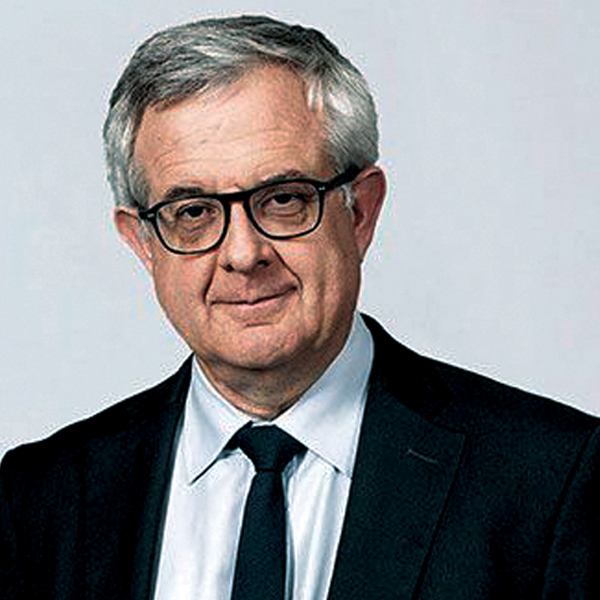

Long-term investors are increasingly becoming aware of climate change risks and the need to take measures that will curb them. Despite this growing awareness, however, there is still a lack of products to help clients align their portfolio in the low carbon economy and finance the massive needed green infrastructure.
This constitutes the foundation of Amundi Planet Emerging Green One (AP EGO), launched in February 2018 by Amundi and International Finance Corporation (IFC). To date, it is the largest green bond fund in the world having raised $1.4 billion from institutional investors and expected to deploy $2 billion by 2025. The fund’s sole focus is emerging markets.
The origins of the strategy are rather notable, with both Amundi and IFC having decided to collaborate and develop a game-changing approach with multiple facets.
the new space race
cover story
Who Will Take the Lead?
advanced than ever.
Who Will Take the Lead?
advanced than ever.
As human exploration into space continues to advance forward, the dream of sending humans to colonize the moon, explore Mars, and travel beyond our solar system’s outermost reaches will soon become a reality. But instead of governments pioneering on this front, it may very well be private companies that lead the future into space flight. Indeed, while colonizing planets and travelling to far off galaxies may not be possible for quite some time, sending private citizens into suborbital space to take a snapshot of the earth from above may become a reality within the next year. In fact, with NASA partnering with private companies such as SpaceX and Blue Origin on projects based around the creation of reusable spacecrafts capable of carrying both payloads and human passengers to and from the International Space Station as well as other similar missions centered around sending humans into the deeper reaches above, the personal spaceflight industry may very well be on the verge of taking off.
BLOCKCHAIN & SDGs
SPECIAL BRANDED FEATURE

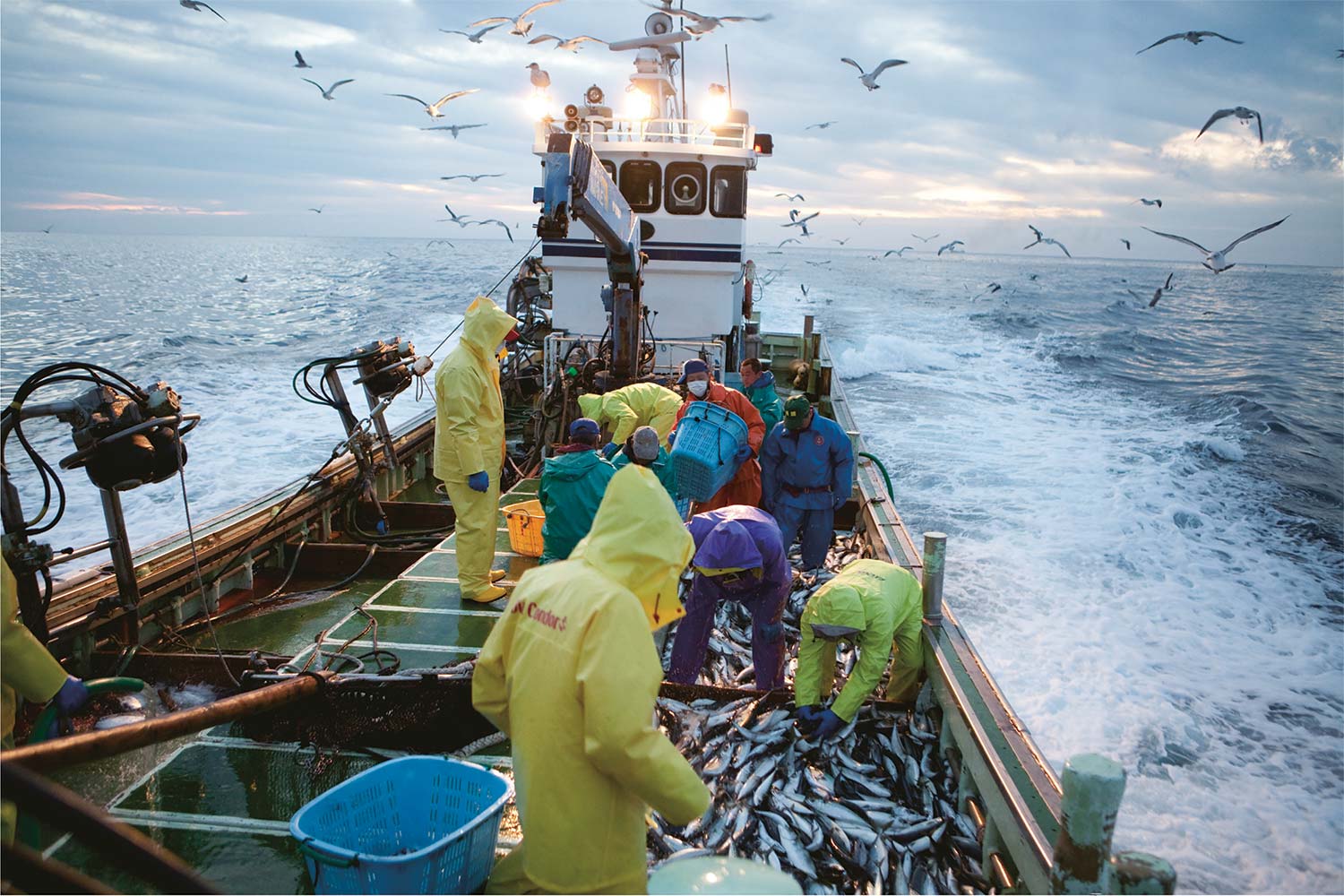


brand has recently taken the spotlight on the fashion scene. The crocodile leather handbags, sold by the popular South African brand “Okapi” and priced about 120,000 yen, were sold out just hours after going on sale. Hanneli Rupert, the founder and owner of Okapi, told that they have actually become a true luxury brand by ensuring the traceability of our raw materials in an interview by Forbes. She also stated that the crocodile leather is a by-product of other products and not involved in the destruction of nature. Traceability is essential to creating a sustainable society, which is the goal of the SDGs, as well as one of the requirements for improving product competitiveness.
Honma Gyogyo, a fishery company operating in Muroran city in Hokkaido, stands out as having Japan’s first comprehensive fishery product traceability system which enables information about their fishery products to be traced from the sea to the consumers. The company has about 50 employees. It has four Danish seine trawlers with a capacity of 140 tons to catch Alaskan pollock and generates about 1.5 billion yen in annual sales.
INNOVATION
SPECIAL BRANDED FEATURE
G20 Japan Attracts Millennials for their SDGs Innovation Hubs
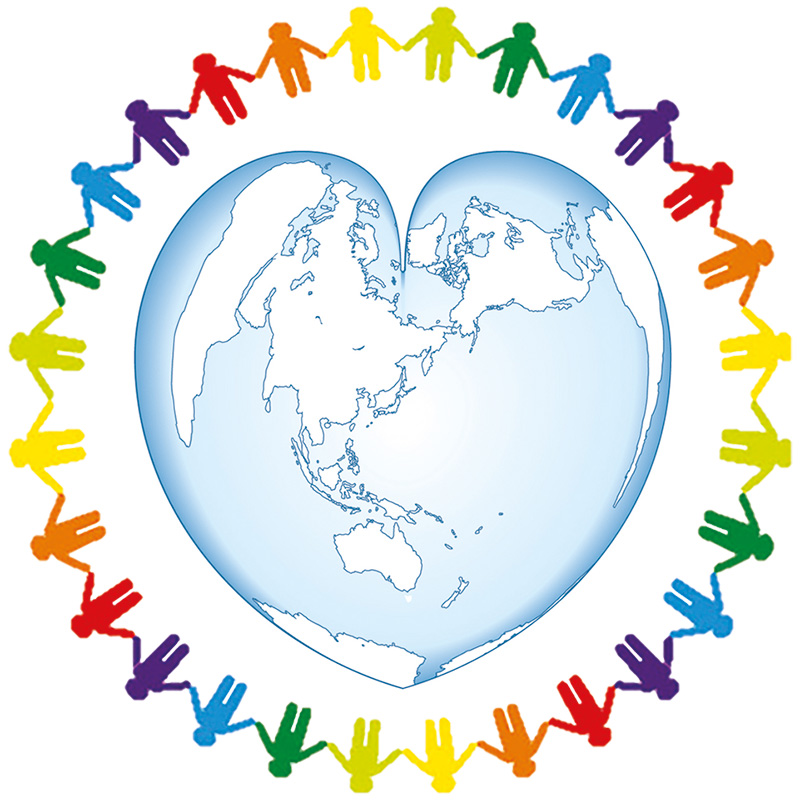
Japan hosts its first ever G20 Summit and Ministerial Meetings in 2019, a decade after the 1st meeting on the 2008 financial crisis. Japanese PM announced that Japan is determined to lead global economic growth by promoting free trade and innovation, achieving both economic growth and reduction of disparities, and contributing to the development agenda and other global issues with the SDGs at its core, incluring quality infrastructure, global health, climate change, ocean plastic waste, digital economy, aging and diversified society, etc., and through these efforts, Japan seeks to realize and promote a free and open, inclusive and sustainable, “human-centered future society.”
G20 Summit and 8 Ministerial Meetings are, at the same time, perfect opportunities for people from all over the world to see and experience not only a newly revitalized and transforming Japan but also the wide-ranging appeal of the various regions that will host these consequential discussions.
knowledge infrastructures
SPECIAL BRANDED FEATURE

and research institutions worldwide are constantly adding to the stock of knowledge. The information uploaded in the world wide web or shared through social networks is growing exponentially, while smartphones and other connected devices are generating trillions of data ready to be analyzed by ever smarter algorithms. Better knowledge and more information should enable us to solve many of the problems we are facing. The potential for a bright future in the digital age is enormous. However, seen from a liberal and humanitarian perspective, there are also fundamental risks. Connectivity increases interdependence. We concede control over our lives. Our wellbeing is increasingly determined by decisions made by others. This loss of control is further aggravated by our growing ignorance. Our cognitive abilities have long since been unable to keep pace with the growth of knowledge and information. We know less and less about the world we live in—a truth we tend to ignore, because it can be frightening.
RENEWABLE Energy
SPECIAL BRANDED FEATURE


opportunities are growing as the industrial experience has brought down the costs of electricity from renewables. In the 20th century, resource depletion and greenhouse gas emissions appeared to set energy constraints on global human development. Today, the dramatic reduction of costs has made renewable electricity generation as the lowest cost source of new electricity in most parts of the world, in a growing number of places without subsidies.
Still, we may fail to utilize these opportunities at sufficient speed to avoid the risks of unmanageable rate of climate change. In order to succeed a combination of intelligent and determined political and industrial leadership is desired.
Opportunities are illustrated by the rapid development of solar and wind electricity in the United States, and even larger capacity installations in China. The economic competitiveness developments are also visible in Europe were in 2017, the first commitments by large power producing companies to deliver electricity from off-shore wind without subsidies off the German and later Dutch North-sea coast-lines. This achievement was possible after years of developments involving subsidies from governments, and development efforts by suppliers of power plants.
Technology and Society
SPECIAL BRANDED FEATURE


research institutes and think tanks already contribute to the fields of foreign policy, economic policy or environmental policy in Germany. Issues related to new technologies, however, lack comparable expert organizations. The Berlin based Stiftung Neue Verantwortung (SNV) fills this gap in the landscape of German institutes and think tanks. Our work ranges from cybersecurity and cyber-diplomacy to questions regarding the impact of technologies on the future of work. We study the challenges associated with a data-driven economy, examine the tension between digital rights and national security, and develop new ideas how digital technologies can foster the transition to green energy. And we investigate how artificial intelligence has emerged as a key technology that poses new challenges for international cooperation and competition.
The field of technology does not only need new think tanks with specialized expertise but also a new model for think tanks. We live in an era of rapid technological change. The Internet and digital technologies challenge governments around the globe in fundamental ways. Today new digital products and services can be rolled out instantly to billions of users around the globe. Whether it is the emergence of crypto-currencies, digital disinformation or new cybersecurity risks, governments are struggling to quickly grasp the implications of new technologies in order to harness its opportunities and address the risks.
Global Education
SPECIAL BRANDED FEATURE
Uniting the World Through Education

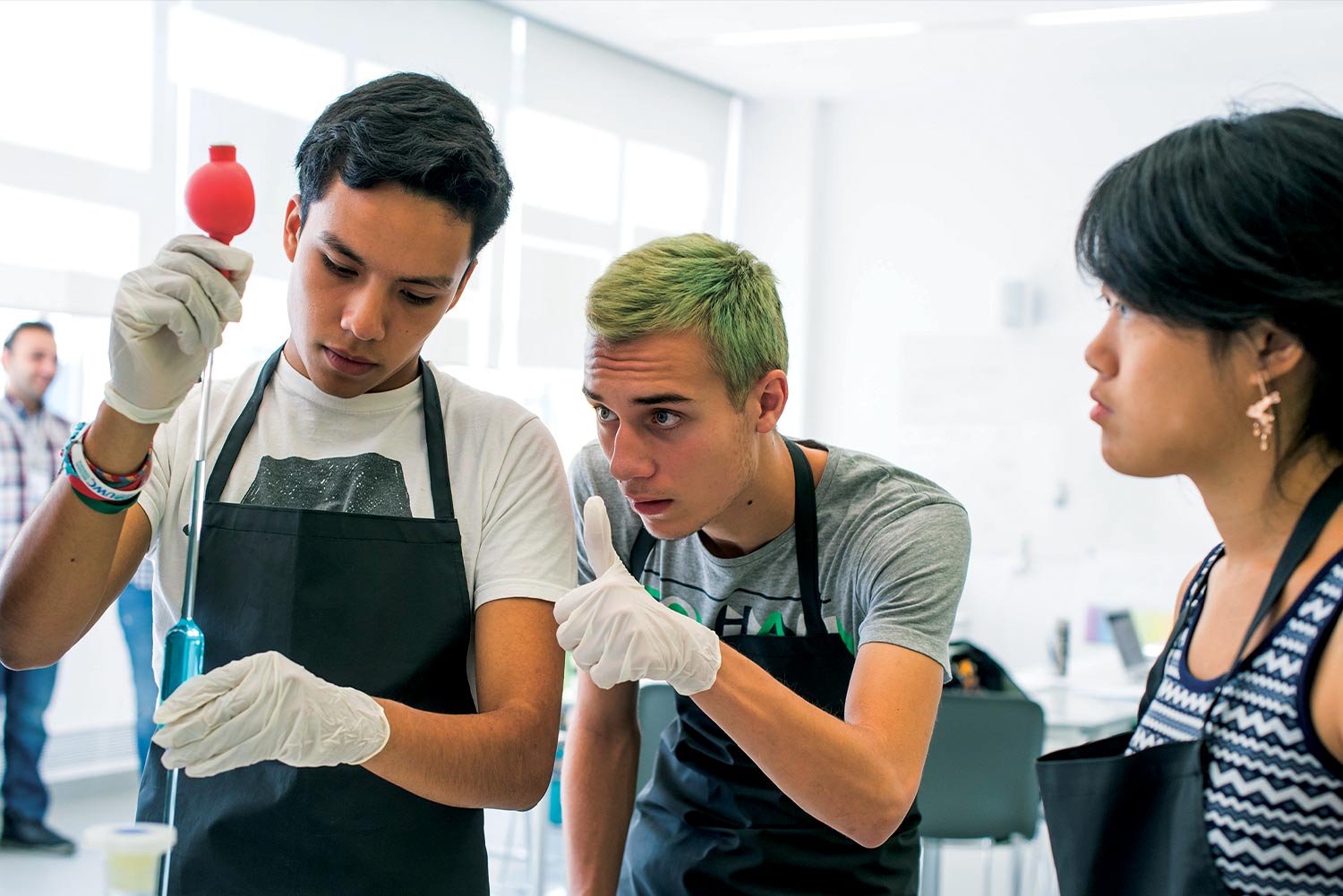
Our rapidly
changing world needs a new kind of leadership. Globally-minded, ethical, strong leadership. Leadership that harnesses the power of diversity and thrives in complexity. Leadership that speaks to and includes the younger generation. Leadership as compassionate as it is courageous. This is what we foster at UWC.
UWC (United World Colleges) is a global movement with the mission to unite people, nations and cultures for peace and a sustainable future. We recognise that our goal – a more peaceful, just and sustainable world – is an aspirational one. But since our founding in 1962 we have had a transformative impact on 60,000 UWC graduates from 160 countries simply by deploying what our late Honorary President Nelson Mandela called the most powerful weapon to change the world: education.
There are 18 UWC schools and colleges and dozens of UWC short educational programmes worldwide. Each serves as an incubator for the next generation of global leadership. Many of our alumni lead in their respective fields: science and technology (there are two UWC astronauts), business (from CEOs of Fortune 500 companies to some of the most innovative start-up founders) and politics (currently, Canada’s Chrystia Freeland and Sierra Leone’s David Sengeh are among our graduates).
SOUTH AMERICAN JETS
branded story

South American Jets and the Japanese B20
Our Role in Society

South American Jets (SAJ) participates in the G20’s Leaders Global Briefing Report for the second time.
This occasion also gives us the responsibility to be observant about geopolitical, economic, and social changes. As distant participants in the G20, we follow the new global dynamics (Digitization) closely. However, most of all, we believe that this chance makes our role more active, which means that we should be critical and alert with the results produced by the G20’s Summit.
Eurochambres
feature

A G20 Summit with New Challenges Ahead
the 20 most influential; global leaders are poised to meet and discuss pressing international issues that will require coordinated global solutions in order to be effectively addressed. The 2019 G20 Summit in Osaka (Japan) is by no means an exception – in fact, this year calls for more international action than ever before. However, among the series of rising global challenges that our communities are facing, how should the G20 Leaders best cope with the tasks ahead?
While many different elements deserve to be highlighted, the G20 meeting in Osaka, is good a platform to take stock of what has worked in the G20 and what hasn’t, and to refocus action on key priorities that most affect the global community. For EUROCHAMBRES, the following points deserve to be emphasized.
First, remains crucial for G20 leaders to promote growth, in a climate where trade tensions heighten and risk escalating further. Equally a rising climate of protectionist practices around the world and especially in the G20 are further threatening growth prospects despite previous G20 pledges to reduce them. The World Trade Organization found in its November 2018 Annual Report on the G20 that approximately 40 new trade restrictive measures were applied by the G20 in 2018 alone, – a record high since 2012, and 6 times higher than the value recorded in the previous period by the WTO. This situation takes a toll on growth. In that respect, the International Monetary Fund and the Asian Development Bank have issued warnings to the international community in their recent annual reports that world economic growth is projected to drop from 3.6% to 3.3% if the current protectionist climate persists.
CLIMATE CHANGE
feature
Why Europe Should Support Africa in Adapting to Climate Change
In many African countries, where millions rely on small-scale, rain-fed agriculture, water scarcity has led to more “bust” than “boom”.
like to say that we owe our entire existence to a six-inch layer of topsoil and the fact that it rains, but with climate change bringing more frequent droughts, the adage is wearing worryingly thin.
In many African countries, where millions rely on small-scale, rain-fed agriculture, water scarcity has led to more “bust” than “boom” for food production in recent years.
With the continent facing the greatest impact of rising temperatures worldwide, Africa’s vulnerability and capacity to adapt to more extreme weather should be a global concern, but especially so for its close neighbors, donors, and principal trading partners in Europe.
After Africa Climate Week took place in Ghana last month (March 18-22), climate adaptation in agriculture should be high on the agenda and Europe should be watching closely for several reasons.
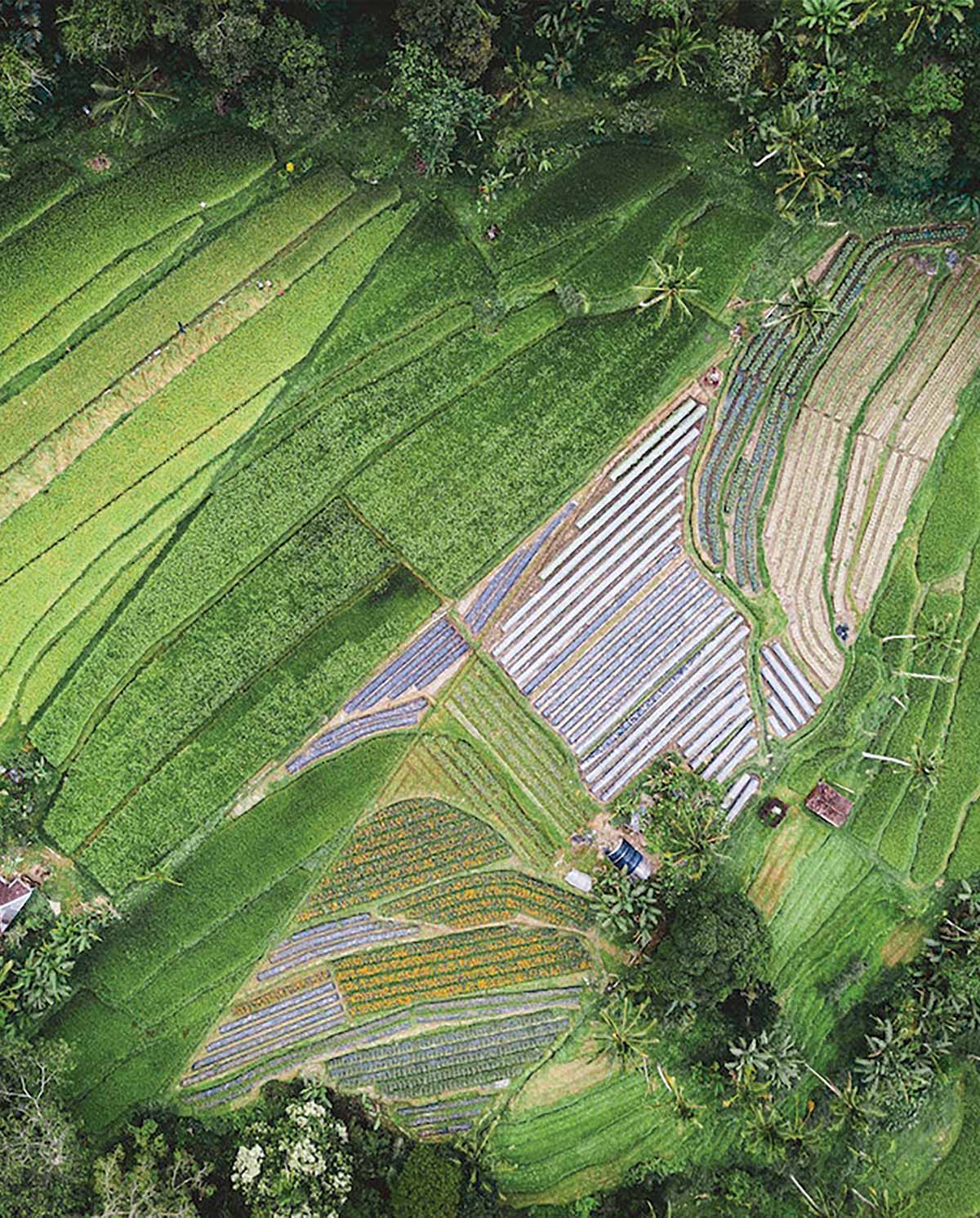
Why Europe Should Support Africa in Adapting to Climate Change
In many African countries, where millions rely on small-scale, rain-fed agriculture, water scarcity has led to more “bust” than “boom”.

like to say that we owe our entire existence to a six-inch layer of topsoil and the fact that it rains, but with climate change bringing more frequent droughts, the adage is wearing worryingly thin.
In many African countries, where millions rely on small-scale, rain-fed agriculture, water scarcity has led to more “bust” than “boom” for food production in recent years.
With the continent facing the greatest impact of rising temperatures worldwide, Africa’s vulnerability and capacity to adapt to more extreme weather should be a global concern, but especially so for its close neighbors, donors, and principal trading partners in Europe.
After Africa Climate Week took place in Ghana last month (March 18-22), climate adaptation in agriculture should be high on the agenda and Europe should be watching closely for several reasons.
Climate Change
FEATURE
Simultaneous Heatwaves Caused by Anthropogenic Climate Change
Without the climate change caused by human activity, simultaneous heatwaves would not have hit such a large area as they did last summer. This is the conclusion of researchers at ETH Zurich based on observational and model data.
economic policy
Simultaneous Heatwaves Caused by Anthropogenic Climate Change
Without the climate change caused by human activity, simultaneous heatwaves would not have hit such a large area as they did last summer. This is the conclusion of researchers at ETH Zurich based on observational and model data.
will remember last summer—not only in Switzerland, but also in large swathes across the rest of Europe, as well as in North America and Asia. Multiple places around the world experienced heat so severe that people died of heatstroke, power generation had to be curtailed, rails and roads started to melt, and forests went up in flames. What was truly sobering about this heatwave was that it affected not only one area, such as the Mediterranean region, but several across the temperate zones and the Arctic simultaneously.
ETH researchers have concluded that the only explanation of why heat affected so many areas over several months is anthropogenic climate change. These are the findings of the recent study that ETH climate researcher Martha Vogel presented today at the European Geosciences Union press conference in Vienna. The paper resulting from this study is currently in review for an academic publication.
food security
feature
Inequality, Agriculture and Climate Change:
A transformation is urgently needed in the world’s food system to make it more resilient to climate change and to reduce its emissions.

is being felt on climate change. Schoolchildren are striking, there are protests in the streets, and politicians across the world, including the UK, are pushing to call climate change a national emergency.
A cruel irony is that climate change will not be felt equally by all—those who have contributed the least to rising temperatures are set to suffer the most.
The world’s poorest economies are largely dependent on agriculture—which not only provides employment for millions of the rural poor, but produces the food required for rapidly growing populations. Climate change is however projected to have stark impacts on crop yields in these regions. The majority of areas growing the staple crop maize in Africa are predicted to suffer yield reductions between 12-40 per cent, while millet and sorghum yields are predicted to decline between 10 and 15 per cent respectively.
cpa canada
branded story


- integrate societal issues into corporate thinking and
- take responsibility for the impacts of their operations on society1.
Corporations must ask relevant questions they may not have previously considered. For example:
- How do urbanization and demographics, energy costs, and availability of agricultural land, create business risks and/or opportunities?
- How do disease, poverty and/or illiteracy impact a company’s workforce and productivity in supply chains?
- What are the business risks and opportunities associated with:
- How a company’s products affect people’s lives
- How a large infrastructure project impacts communities
- How extractive companies work with local indigenous communities
- How resource limits influence decisions?
future of education
feature
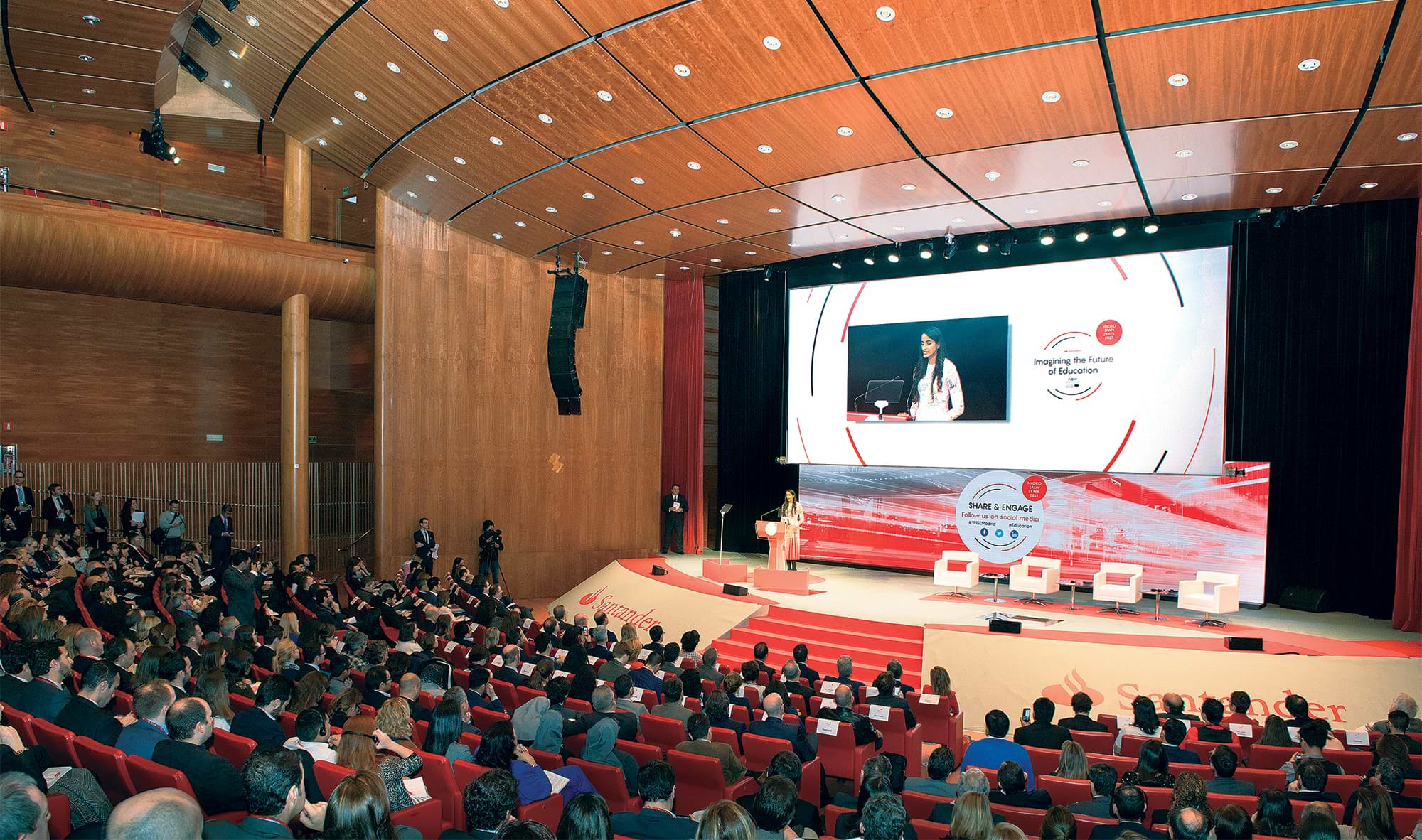
The World Innovation Summit for Education (WISE) is reimagining the future of education in a changing world. A global initiative that brings together decision makers, teachers, and educational experts in an effort to tackle the world’s evolving educational challenges, WISE sees advancements in education as key for addressing global issues including poverty, skills gaps, inequality, and conflict.
higher education
branded story
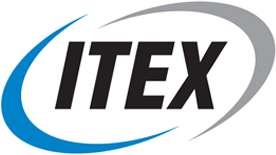

Carroll is the founder and president of The Coaching Educator, now in its 11th year of advising high school students in the U.S. and abroad about college admissions and financial aid.
The cost of higher education in the U.S. has risen at a furious rate in recent years, but Carroll said her company routinely finds tens of thousands of dollars for an individual client, and sometimes hundreds of thousands, while also helping students select and pursue admission to the most suitable institutions.
Show me the money, you say. Carroll is happy to oblige:
“We’re not vague about our claims. It’s unethical to make guarantees, but on average our clients get 25 times as much in financial aid as they pay for our services. Some have gotten a return on investment as high as 89 times. On social media we regularly post specific figures about the money we’ve saved for particular families.”
gender equality
feature
gender equality
feature
Investments in transport, electricity and piped water can reduce women’s unpaid work, free their time and connect them to health services, jobs and markets with long-term economic benefits. The ILO estimates that in developing countries, limited access to and safety of transportation is the single greatest obstacle to women’s participation in the labour market, reducing it by as much as 16.5 percentage points. Online services and digital infrastructure are also important.
GENDER EQUALITY
FEATURE

A report from McKinsey’s Global Institute, called The Power of Parity crystalized this. It provides evidence that the best source of future economic prosperity for the world as a whole lies in the economic inclusion of women.


Closing the gender gap at work is a matter of justice—women and girls are the world’s largest marginalised population—but it’s also a smart strategy and an important way for organisations to use the talents and energies of all their people, giving them new strengths and greater resilience, and handing human endeavour at all levels, from governments and big corporations, down to small community groups and families, a competitive advantage over those that don’t deploy the talents of all.
A report from McKinsey’s Global Institute, called The Power of Parity crystalized this. It provides evidence that the best source of future economic prosperity for the world as a whole lies in the economic inclusion of women.
Future of Health
feature

is a complex and challenging task. How do you create effective new medicines without adverse side effects to address the world’s most pressing health issues? Medical chemists have to consider an array of interactions: drugs interact with cells and organs in the human body in many ways, and these often differ widely from one patient to another. While iterative, often automated, testing methods in the lab have yielded numerous potential starting points for drug development, there are limitations when it comes to designing and selecting the most promising drug candidates. The drug designer must choose from an estimated 1060 druglike molecules that could—only theoretically—be synthesized. What’s more, it takes years of on-the-job-training to become a knowledgeable expert in medicinal chemistry.
Designing ideal drugs is a complex task. This is where artificial intelligence (AI) and machine learning could come in. Deploying AI to assist chemists in the drug design process holds promise for making better decisions: It is much more efficient than the human mind when it comes to sieving through “big” data, AI generates reproducible results and supports the discovery process by considering many project targets in parallel.
Personalized Medicine
FEATURE
These deals show how far pharmaceutical companies will go in their quest for medical data to develop new drugs and fine-tune personalized treatment. The market-driven health data model in the USA explains why companies can find what they need there.
Getting hold of such data in Europe is much more of a challenge for research and industry. In fact, it’s a data misery—for in many European countries, health data is not managed centrally but stored in incompatible formats on independent IT systems. In addition, strict data protection laws make it rightfully difficult to use data without the explicit consent of the individuals concerned.
Overcoming hurdles
The frontrunners in Europe are the Nordic countries such as Denmark, which traditionally hold excellent electronic medical records that are also used for research. Estonia too has set up an e-government and e-health record system in the last ten years. The United Kingdom initiated the 100,000 Genomes Project to promote research in precision medicine, but attempts to make NHS records accessible were less successful, and halted after a media backlash—the main problem being that patients had been insufficiently briefed.
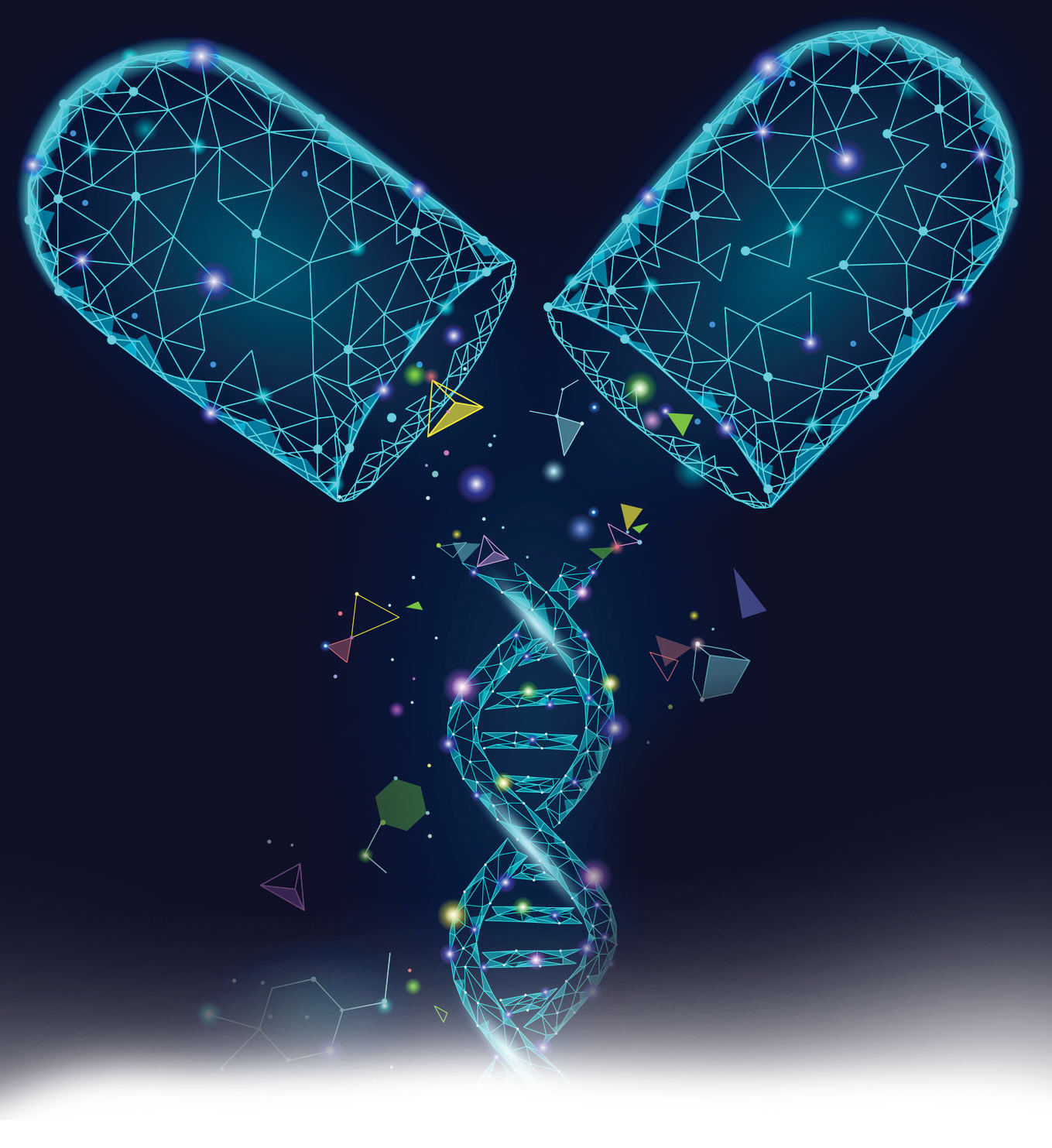


These deals show how far pharmaceutical companies will go in their quest for medical data to develop new drugs and fine-tune personalized treatment. The market-driven health data model in the USA explains why companies can find what they need there.
Getting hold of such data in Europe is much more of a challenge for research and industry. In fact, it’s a data misery—for in many European countries, health data is not managed centrally but stored in incompatible formats on independent IT systems. In addition, strict data protection laws make it rightfully difficult to use data without the explicit consent of the individuals concerned.
Overcoming hurdles
The frontrunners in Europe are the Nordic countries such as Denmark, which traditionally hold excellent electronic medical records that are also used for research. Estonia too has set up an e-government and e-health record system in the last ten years. The United Kingdom initiated the 100,000 Genomes Project to promote research in precision medicine, but attempts to make NHS records accessible were less successful, and halted after a media backlash—the main problem being that patients had been insufficiently briefed.
BIG DATA
FEATURE
For one, despite naive views to the contrary, oil is a scarce asset, whereas data is not. It was not until the advent of blockchain technology, that the concept of data singularity even became possible. A barrel of oil or the unexploited resource deep underground or trapped in shale deposits cannot have a digital twin and certainly not with a fractional cost of zero. While digital tokens can represent a share of an underlying asset such as oil, the fact of the matter is that the party that has the care, custody and control of the asset – in oil’s case typically a gun-toting nation state – will ultimately have the final say on how it is monetized and apportioned. This is one of the reasons oil and natural resources are so often a casus belli and the subject of expropriation and nationalization cases. Oil, like other tangible assets, labors under a high “drag coefficient” or friction and is geographically constrained. Data, by contrast, is not only borderless, it is formless and infinitely liquid. Wars waged over oil and natural resources are subject to the doctrine of realpolitik, whereas information warfare, psyops and cyber threats play to doctrine of the id and superego turbocharged by Moore’s law and globalization.
BIG DATA
FEATURE

For one, despite naive views to the contrary, oil is a scarce asset, whereas data is not. It was not until the advent of blockchain technology, that the concept of data singularity even became possible. A barrel of oil or the unexploited resource deep underground or trapped in shale deposits cannot have a digital twin and certainly not with a fractional cost of zero. While digital tokens can represent a share of an underlying asset such as oil, the fact of the matter is that the party that has the care, custody and control of the asset – in oil’s case typically a gun-toting nation state – will ultimately have the final say on how it is monetized and apportioned. This is one of the reasons oil and natural resources are so often a casus belli and the subject of expropriation and nationalization cases. Oil, like other tangible assets, labors under a high “drag coefficient” or friction and is geographically constrained. Data, by contrast, is not only borderless, it is formless and infinitely liquid. Wars waged over oil and natural resources are subject to the doctrine of realpolitik, whereas information warfare, psyops and cyber threats play to doctrine of the id and superego turbocharged by Moore’s law and globalization.
MIGRATION
FEATURE
Could the Swiss bespoke model—consisting of several bilateral agreements—inspire a flexible post-Brexit negotiation strategy between the UK and Europe? ETH Zurich professor, Michael Ambühl and researchers Daniela Scherer and Martin Gutmann think it is possible.
U.S.-Japan Trade
FEATURE
TAIWAN CIVIL GOVERNMENT
BRANDED STORY

April 10 marked the 40-year anniversary of the passing of the Taiwan Relations Act, which promoted cultural and economic cooperation between the US and Taiwan, and also provided for the security of Taiwan against military attacks. Now in the face of increased Chinese saber rattling and economic pressure on Taiwan, it is time for the US and its allies in the G20 to increase economic cooperation with Taiwan.
The United States has passed several pieces of legislation within the last year, and authorized arms sales to Taiwan in an effort to forge an even closer relationship with the island nation. In December Congress passed and President Donald Trump signed into law the Asia Reassurance Initiative Act (ARIA), which “establishes a multifaceted U.S. strategy to increase U.S. security, economic interests, and values in the Indo-Pacific region,” according to the White House. It calls for $1.5 billion in aid to the region, including enhanced economic cooperation with Taiwan.
Recently, in 2018, the Taiwan Travel Act was signed into law, facilitating travel and meetings between high ranking US and Taiwanese officials. In January Congress authorized the sale of 66 F-16 fighter jets to Taiwan to increase their defensive capabilities against an attack from China. And, on April 16, the State Department authorized $500 million for maintenance and pilot training for F-16s.
April 10 marked the 40-year anniversary of the passing of the Taiwan Relations Act, which promoted cultural and economic cooperation between the US and Taiwan, and also provided for the security of Taiwan against military attacks. Now in the face of increased Chinese saber rattling and economic pressure on Taiwan, it is time for the US and its allies in the G20 to increase economic cooperation with Taiwan.
The United States has passed several pieces of legislation within the last year, and authorized arms sales to Taiwan in an effort to forge an even closer relationship with the island nation. In December Congress passed and President Donald Trump signed into law the Asia Reassurance Initiative Act (ARIA), which “establishes a multifaceted U.S. strategy to increase U.S. security, economic interests, and values in the Indo-Pacific region,” according to the White House. It calls for $1.5 billion in aid to the region, including enhanced economic cooperation with Taiwan.
Recently, in 2018, the Taiwan Travel Act was signed into law, facilitating travel and meetings between high ranking US and Taiwanese officials. In January Congress authorized the sale of 66 F-16 fighter jets to Taiwan to increase their defensive capabilities against an attack from China. And, on April 16, the State Department authorized $500 million for maintenance and pilot training for F-16s.

SDGs
feature
The aftershocks of 2008 are still being felt today. The Financial Times recently wrote about the brewing worry over modern capitalism in the minds of many top American CEOs. Already in 2011, Dominic Barton, global managing partner emeritus of McKinsey, warned in the Harvard Business Review that business leaders could reform capitalism themselves or have it reformed for them “through political measures and the pressures of an angry public.”
GLOBAL TALENT SUMMIT
branded story

hange is constant and everything inconvenient will change,” declared Chris Luebkeman, Global Director of Arup Foresight at last year’s Global Talent Summit. How we prepare for that change will hinge in whether we are asking the right questions. We ended last year’s summit with more questions than answers. Now in its sixth year, GTS set out to convene cross-sector educators, experts, and public officials from around the world to answer the tough questions about the future of education. This year’s theme sought to answer where will we be in 30 years, and how can we prepare younger generations for the future? Here are the key takeaways.
For Generation Z, figuring out the motivations of top talent will be key in recruiting and retaining them. Global Entrepreneurial Leaders Institute (GELI) founder Annabella Peng drew attention to unique research GELI had conducted, which has found that Gen Z is dedicated to serious social causes, not mere fame or money. The employer on the panel agreed: any corporation that wants to retain top talent from this generation must invest in not only training, but in empowering employees to find meaning in their careers, said adidas Digital IT VP Sebastian Drews. Empowering employees to find a greater sense of purpose is essential to recruiting and retaining top talent from this coming-of-age generation.
economy corporations
feature

CLIMATE CHANGE
feature
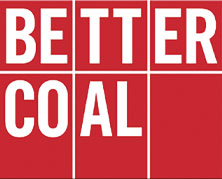
Intergovernmental Panel on Climate Change Report has been the latest of many wake-up calls on the need to rapidly decarbonise our economies. None of the countries that make up the G20 group of major world economies is on course to adequately reduce climate change, with 82% of the bloc’s energy supply still coming from fossil fuels. In the fight against Green House Gas (GHG) emissions and climate change, coal for power generation has been the primary target. So much so that it has been impossible to give technologies like Carbon Capture and Storage (CCS) a real go because they have been branded as “coal friendly” despite the fact that they could – in time – lead to facilitating truly carbon neutral or even carbon positive economies. What is more, although the end of “King Coal” has been forecasted for decades, yet global coal demand grew by 1% in 2017 to 7585 Mt -according to the IEA- with 2018 following quite closely.
Coal will be here for the foreseeable future
Coal was branded the number one enemy of the fight against climate change decades ago. Policy, environmental activism and public perception have focused on coal for power generation. Despite all these concerted efforts, coal still represents 37% of the energy mix across the world. Whilst Europe has a clear pathway to removing coal from power generation by 2040, it will still play a significant role in other parts of the globe, with 24 countries responsible for 50% of CO2 emissions clearly highlighting the role of coal in their Nationally Determined Contributions (NDCs) during COP21. These agreements will be re-opened in 2020, but, in the meantime, coal remains very much part of the energy mix and of manufacturing processes globally.
SDGs
feature

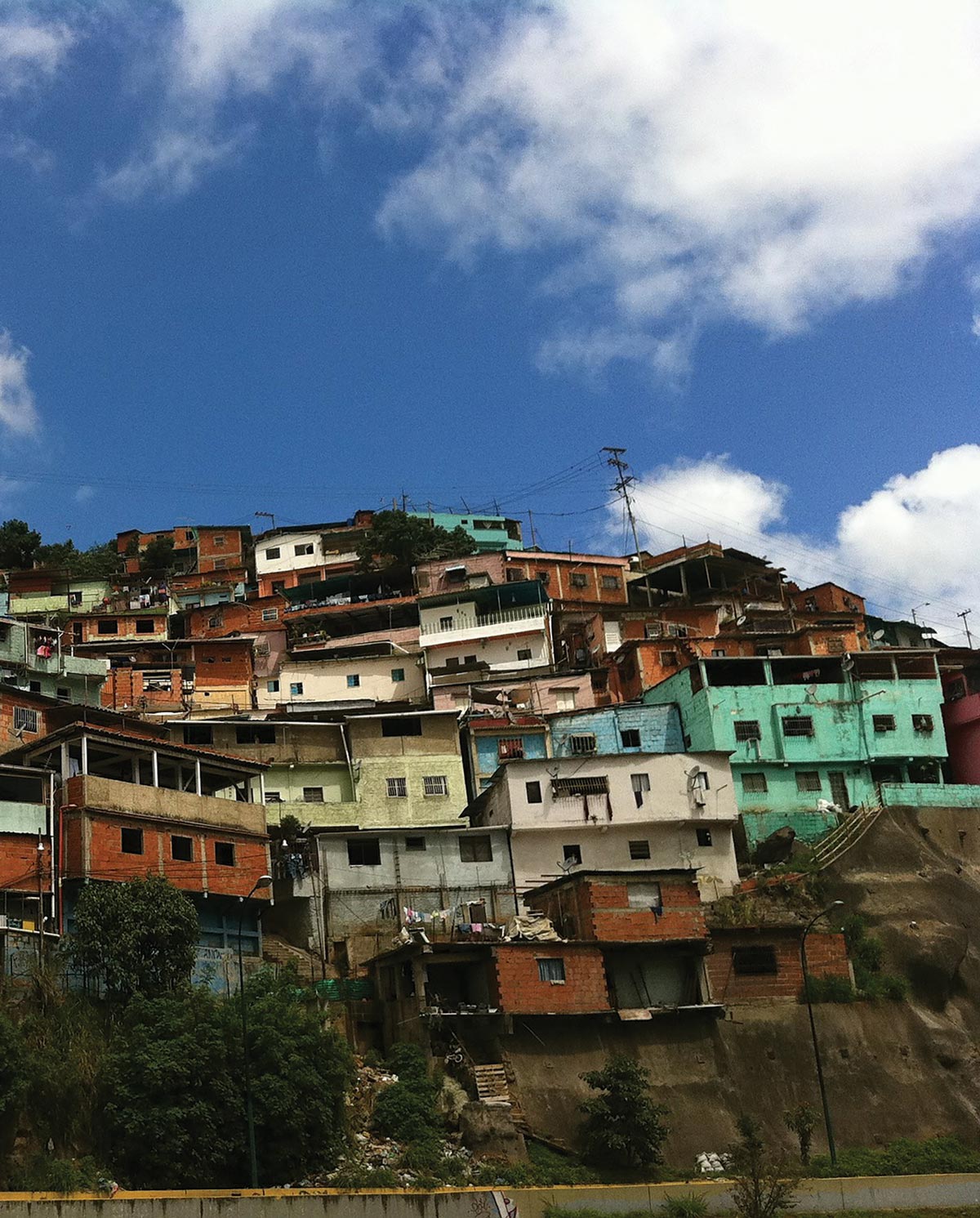
It is an amazing feat that Mr. Maduro and his cronies continue to survive the upheaval in Venezuela given the lack of food, water, electricity, medicine, safety, and security. However, we must realize that this is not solely a Venezuelan problem; it has now mushroomed into a hemispheric crisis affecting its closest neighbor—Colombia.
The most pressing crisis is the large exodus of Venezuelans leaving—approximately 3-4 million as of April 2019—a bona fide diaspora unprecedented in the Latin America region. What is unique about this Venezuelan crisis is that Latin Americans throughout their shared history have been accustomed to leaving their homelands in pursuit of economic opportunity northbound or across the Atlantic Ocean to Europe, not absorbing immigrants from their own continent. In short, Latin Americans exit their countries, not absorb permanent entrants to their respective countries.
